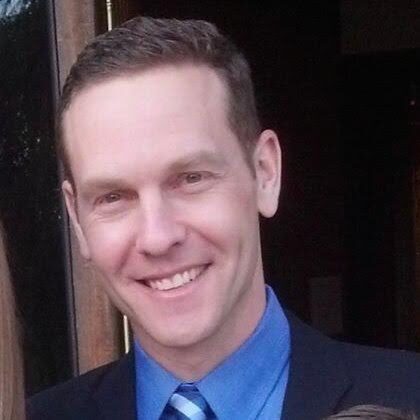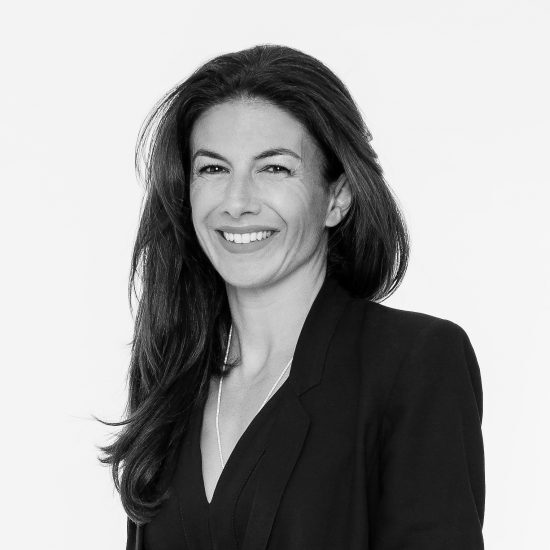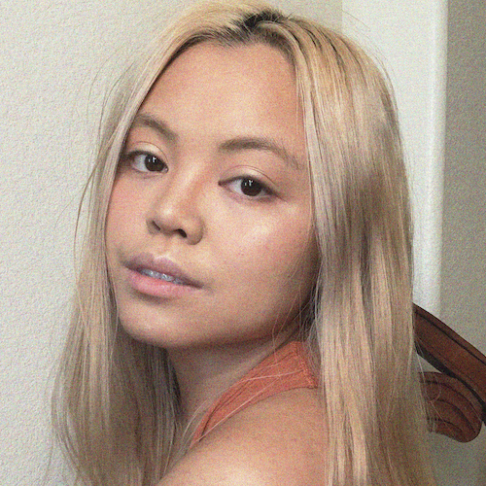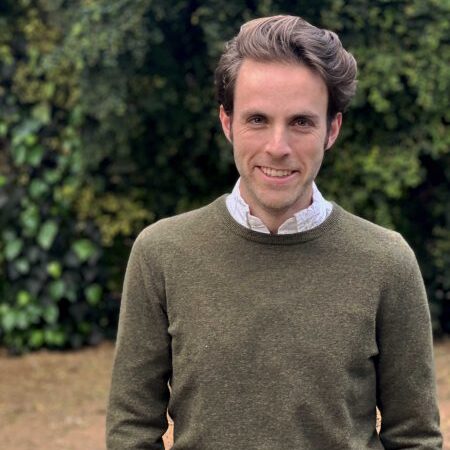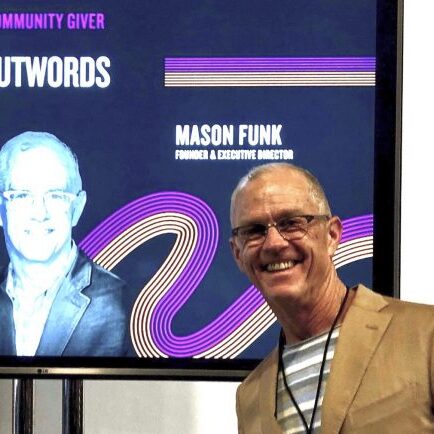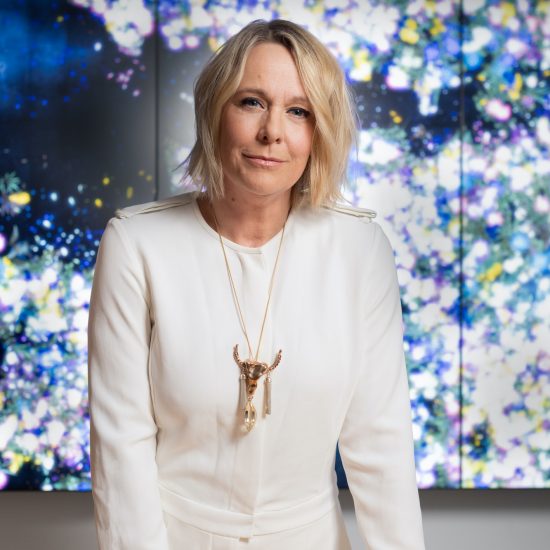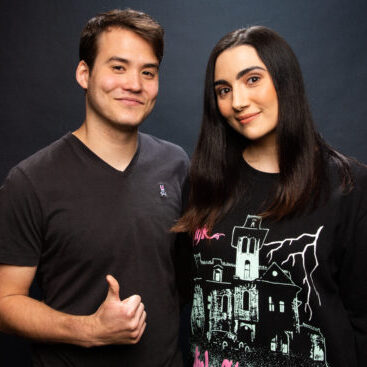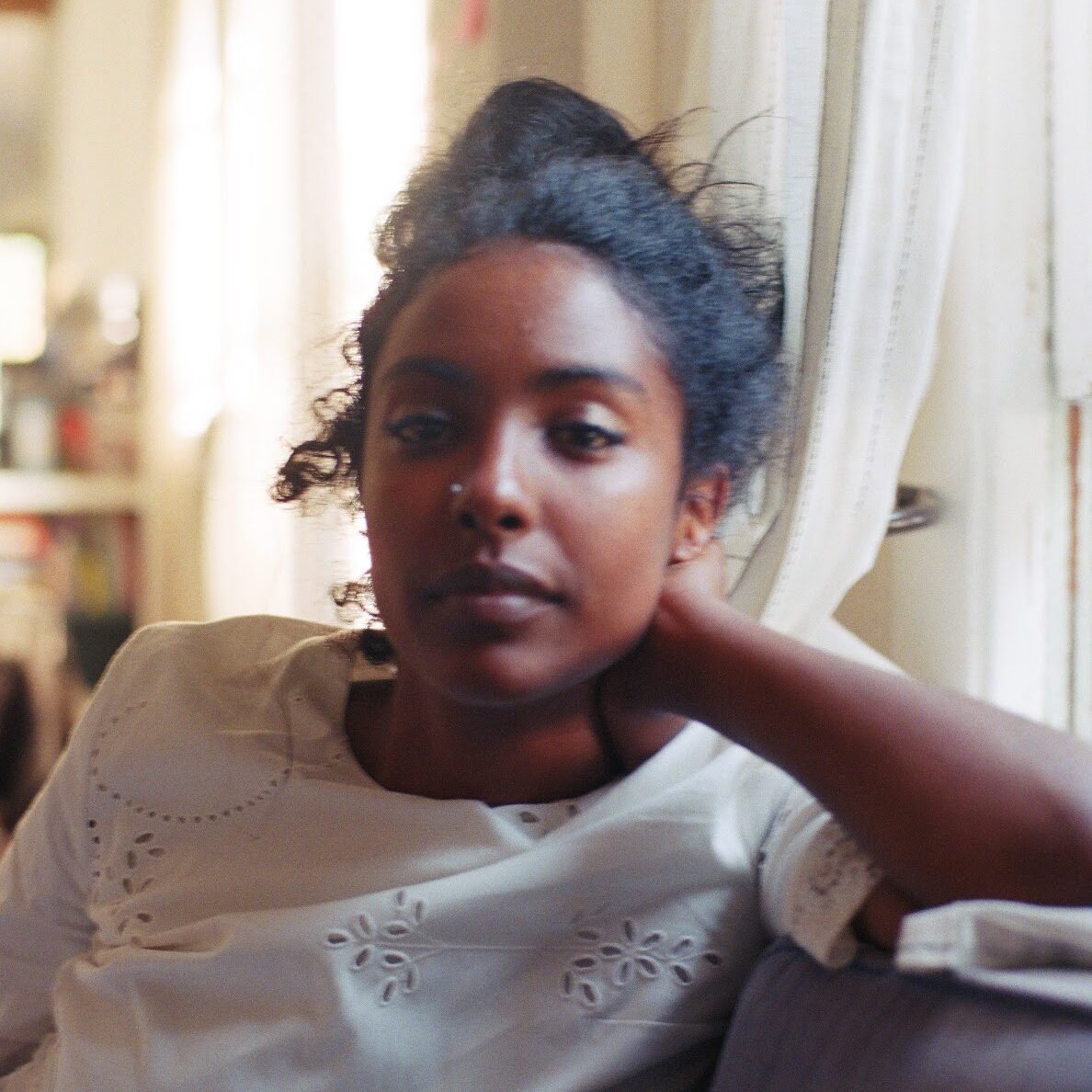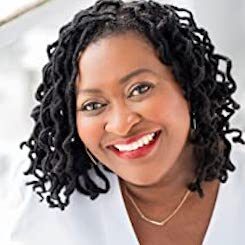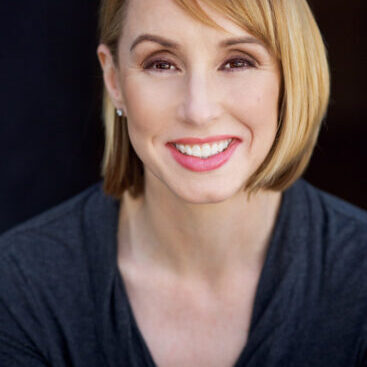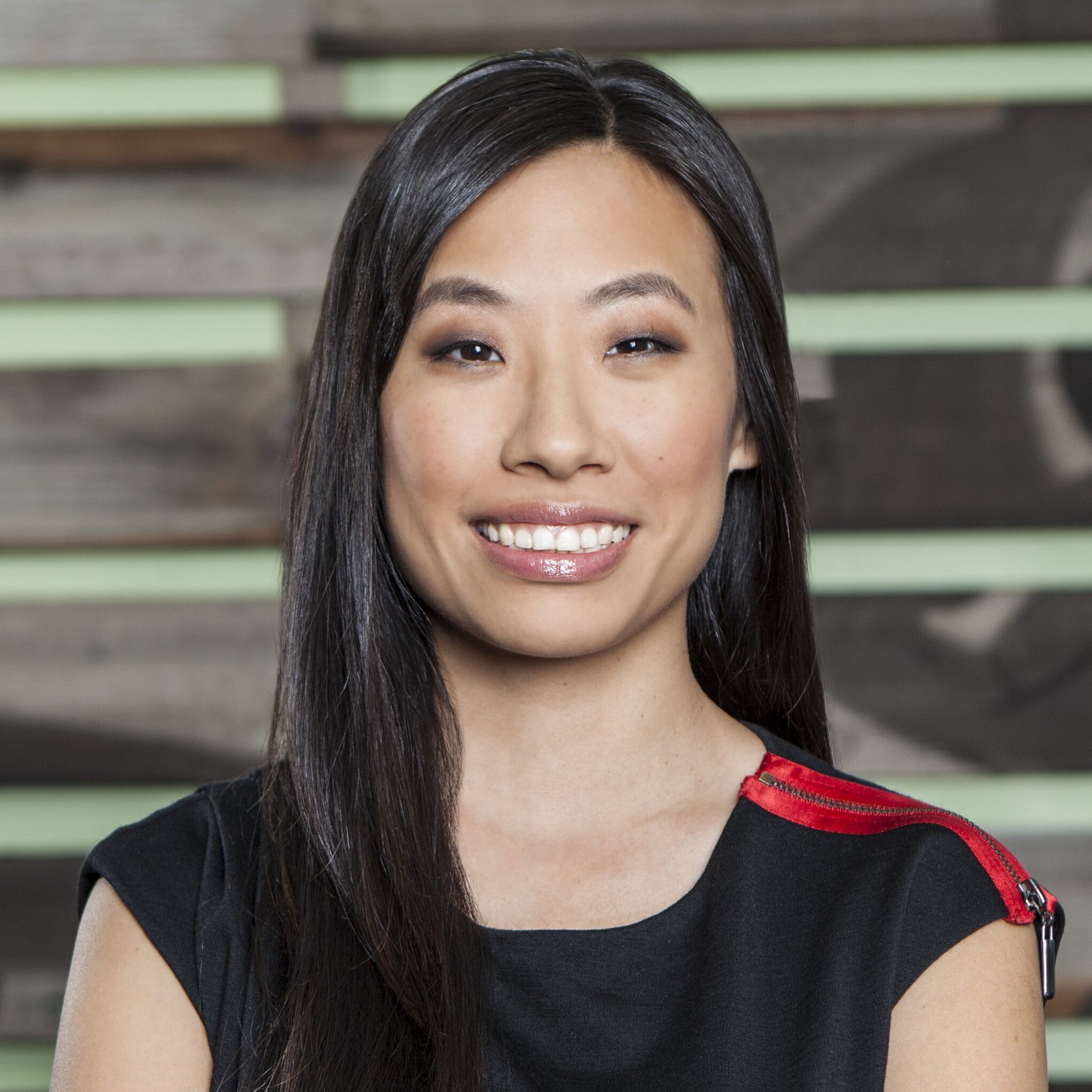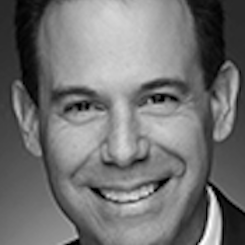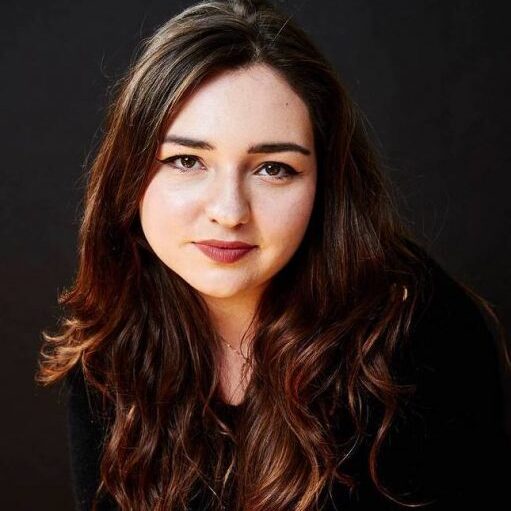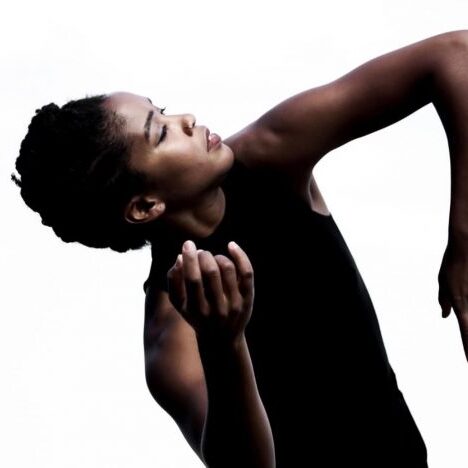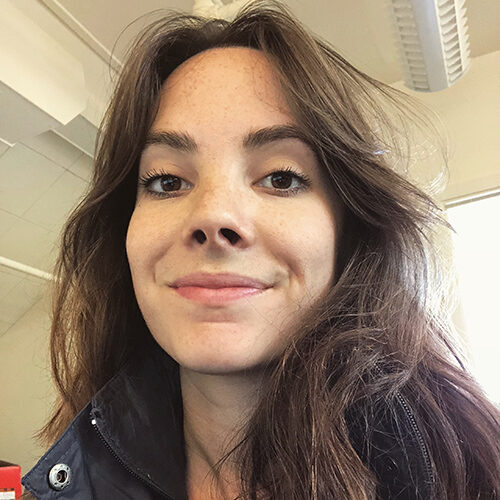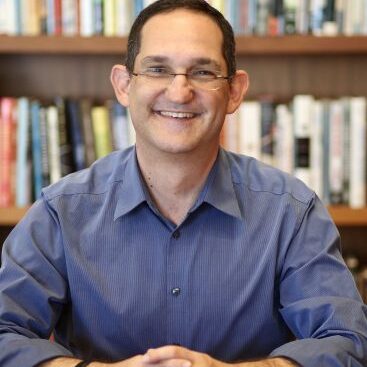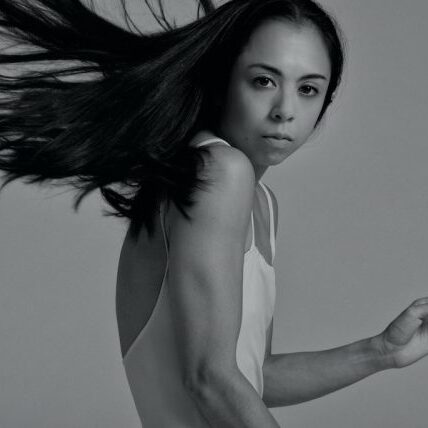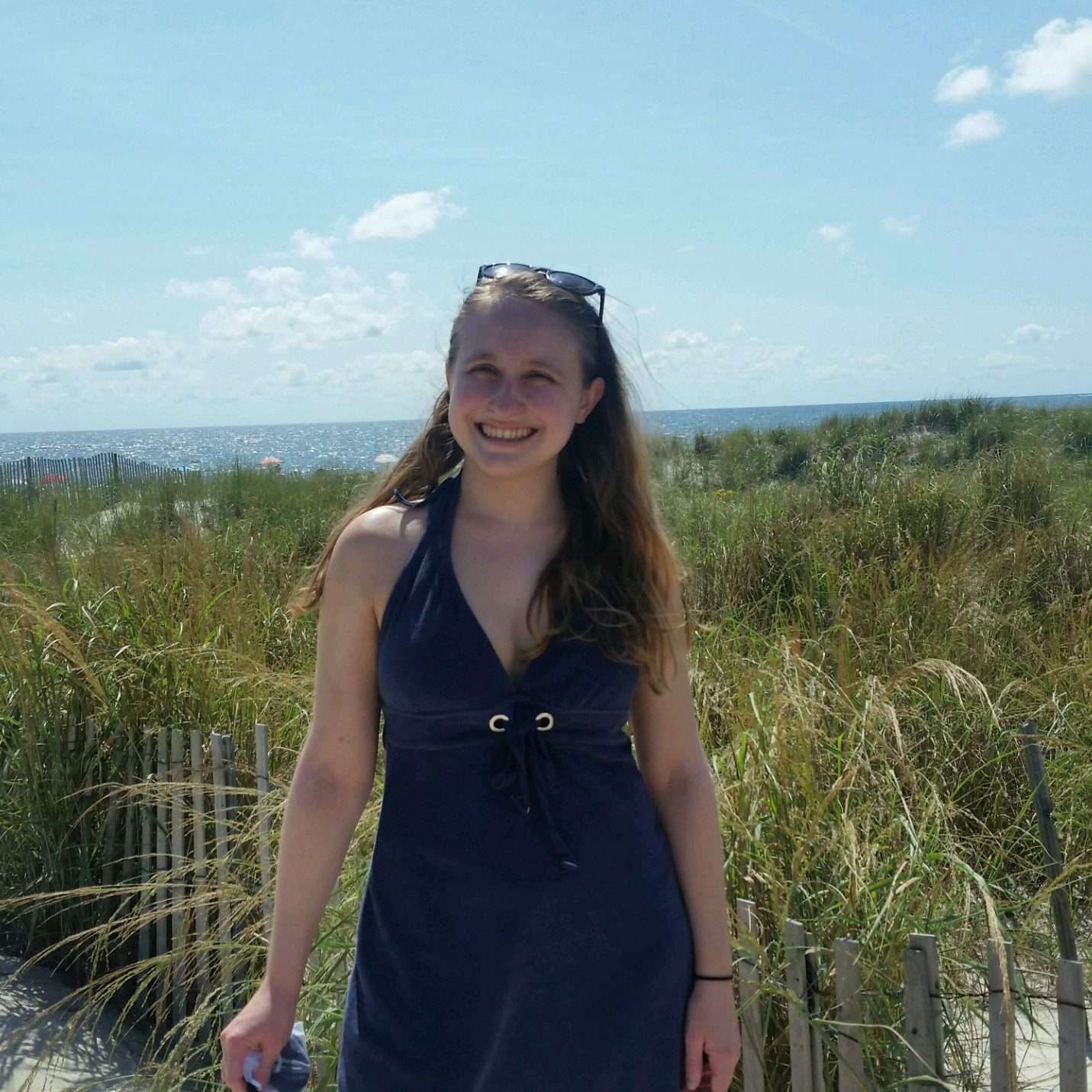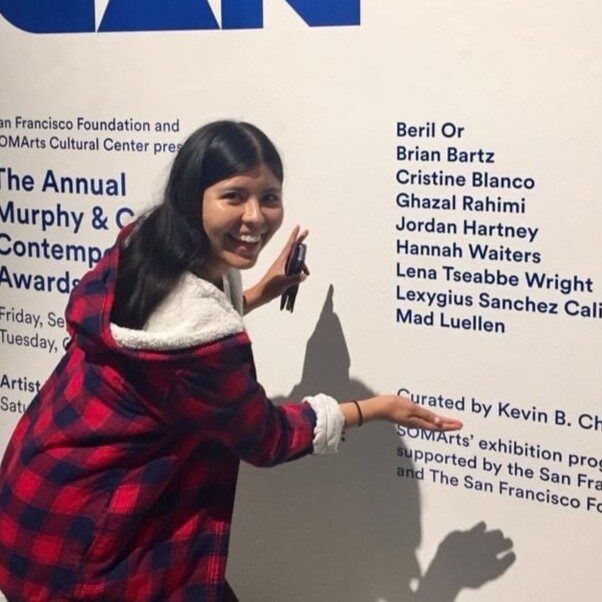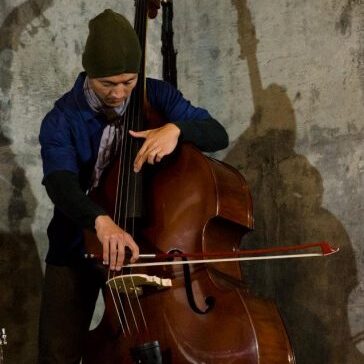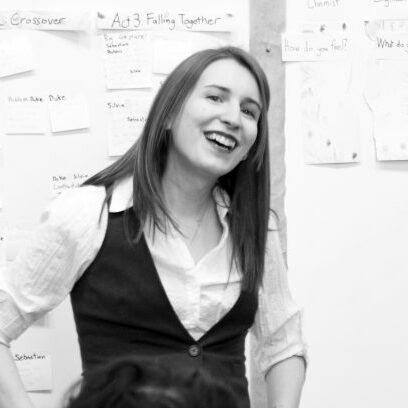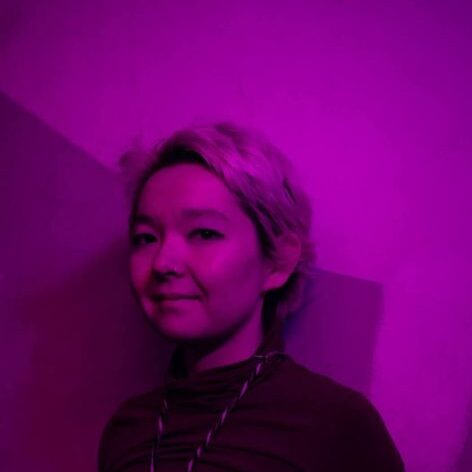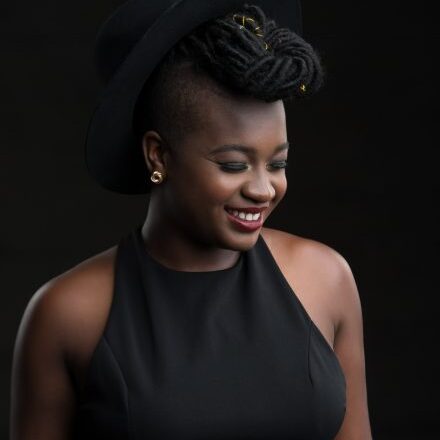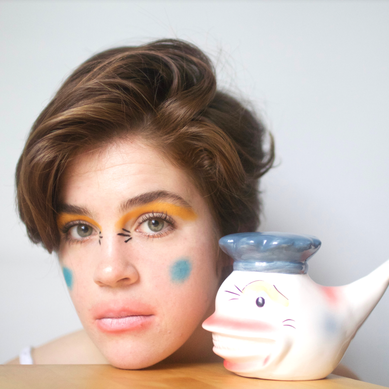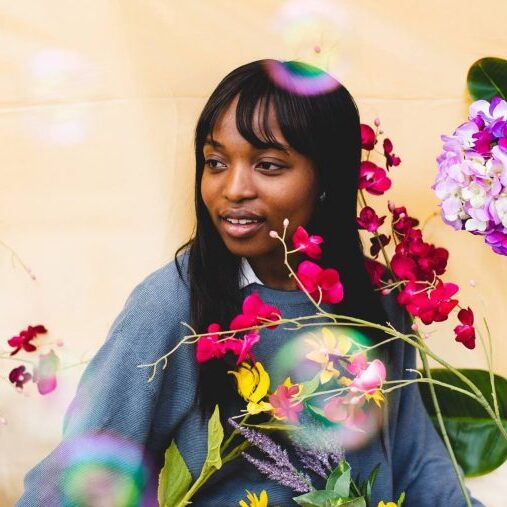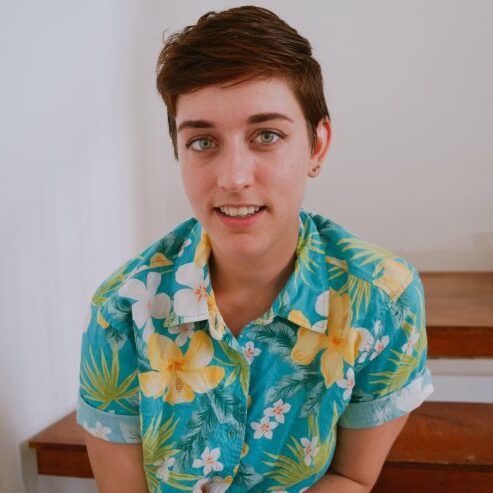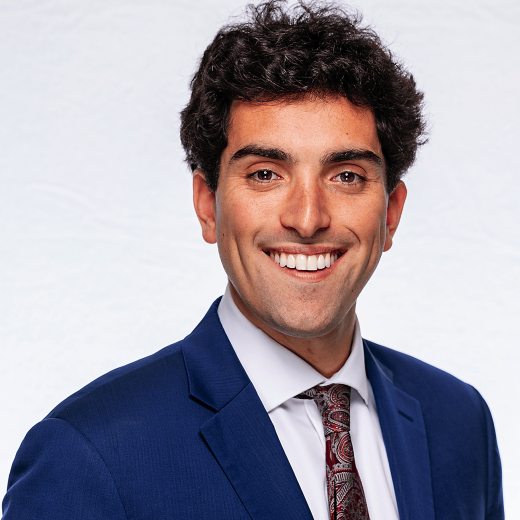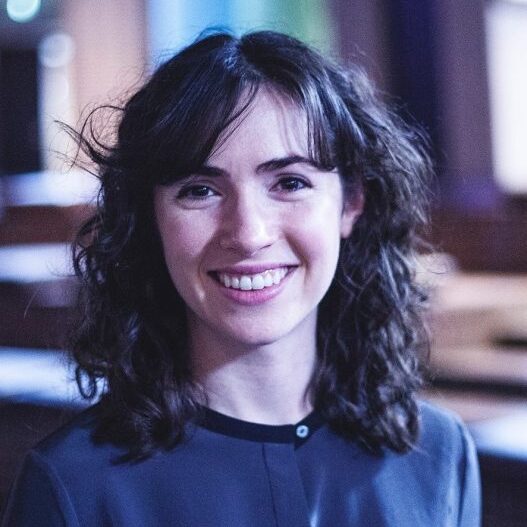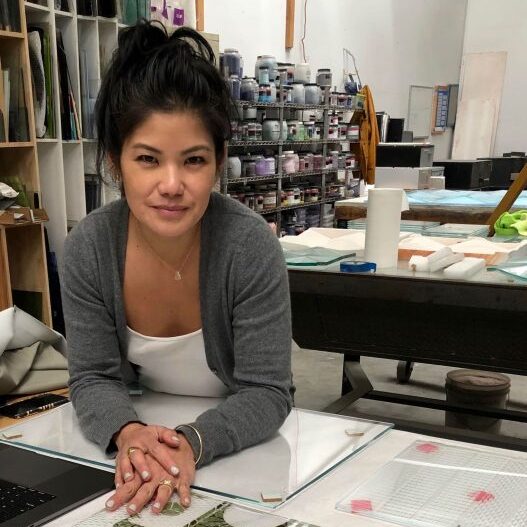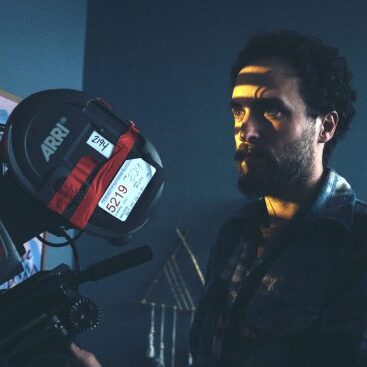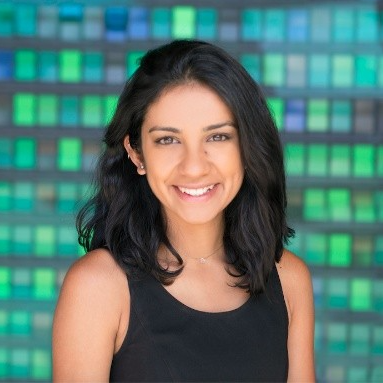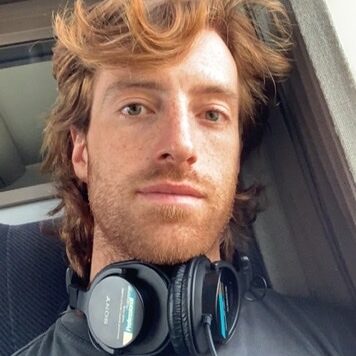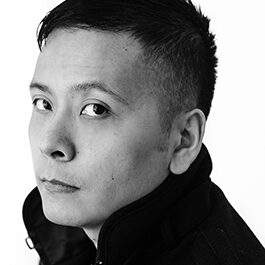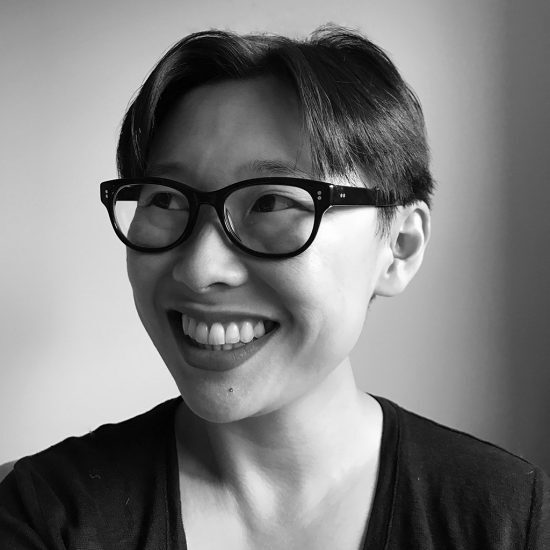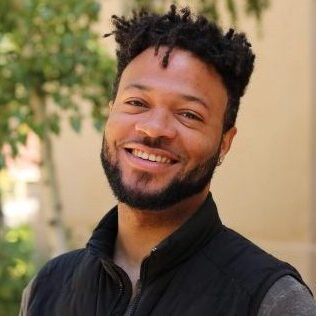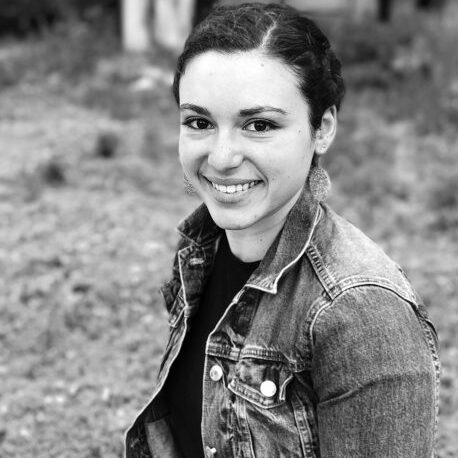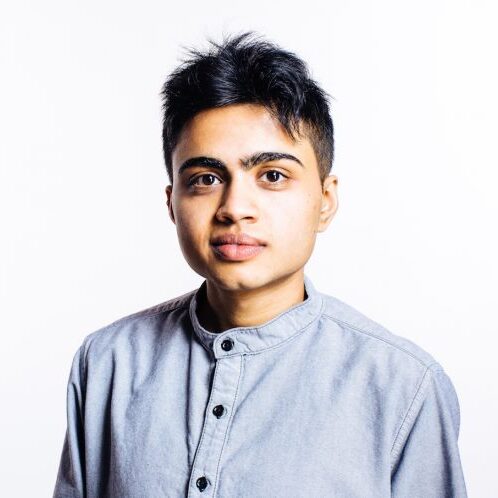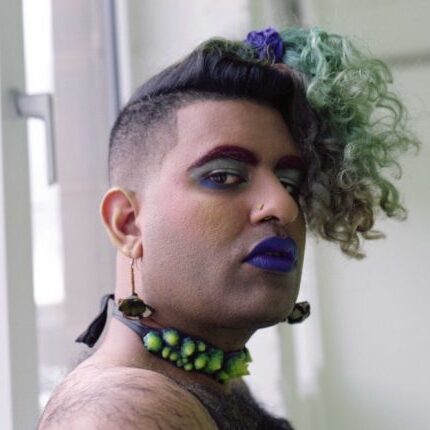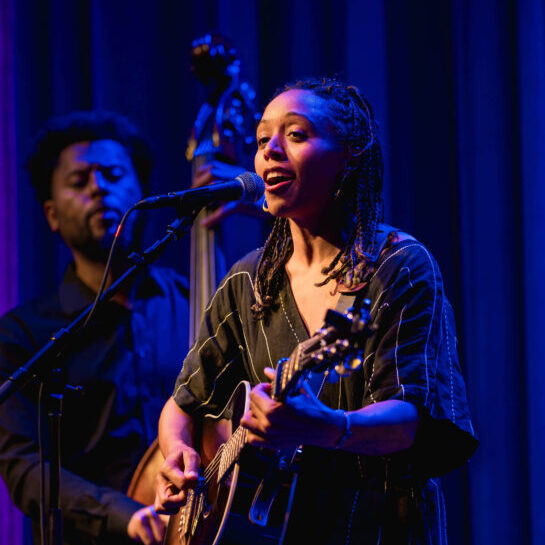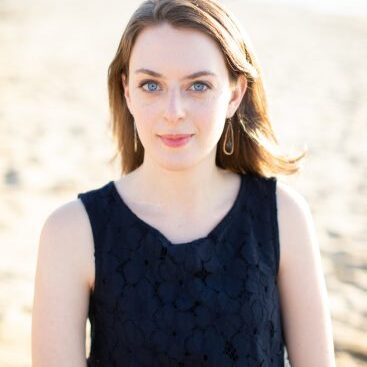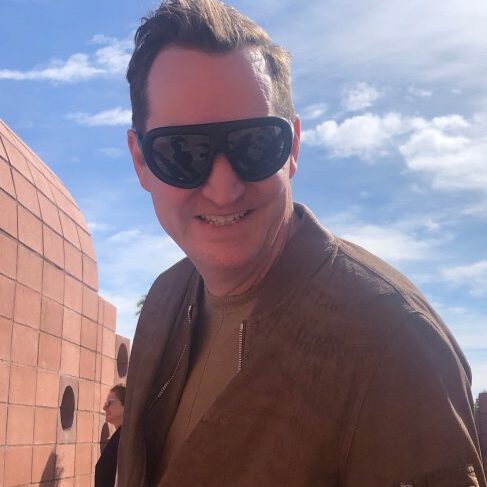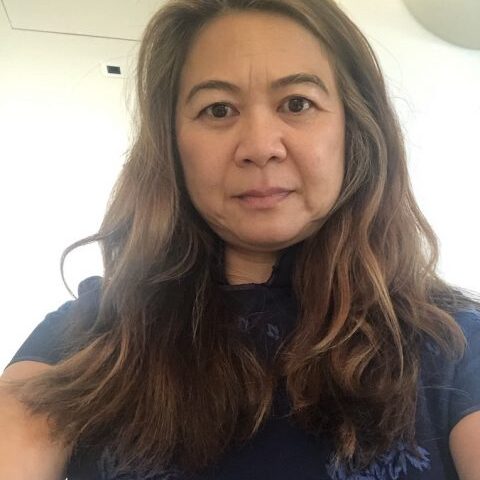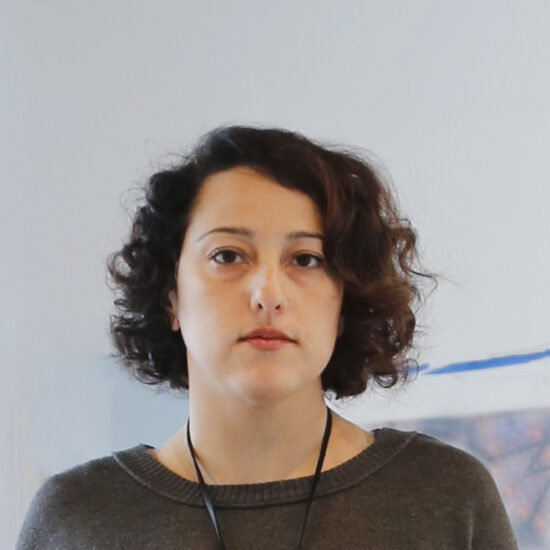Alumni
Stanford alumni working in creative fields answer five questions about their unique career trajectories and experiences, and share advice for students interested in professional pathways in the arts.
Are you an alumni working in the arts or creative field? We want to hear from you!
Filter by:
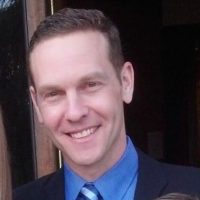
Jonathan Green '95
TV Writer & Producer
1. Exactly what do you do?
Television writer/producer (currently working on "Superstore" for NBC)
2. What was your first job out of college?
Writers' Assistant on a teen sitcom ("California Dreams")
3. Describe a critical moment in your career trajectory.
My writing partner (Gabe Miller '93) and I were working as assistants on different shows, learning how television production works. In our free time, we worked on writing samples. When there was an opening on the writing staff of the show where Gabe was working, we had material to submit, and the showrunner knew us, so we landed our first paid writing job. Right place/right time plus a lot of preparation.
4. How do you sustain your creative practice, from meeting financial needs to staying motivated?
I try not to be too scared of the blank page -- it helps to just get something down and remind myself I can rewrite it later.
5. What advice do you have for current students about what they should be doing now?
Generate as much material as you can, and seek out any opportunity to learn anything even slightly related to the field you eventually want to pursue.
-Jonathan Green (he/him)

Sabrina Buell '99
Art Advisor
1. Exactly what do you do?
Art Advisor.
2. What was your first job out of college?
Working as an assistant to Mary Zlot, an art advisor, who is now my business partner.
3. Describe a critical moment in your career trajectory.
Right after graduation I had the choice - work with Mary Zlot, a respected art advisor with 20 years of experience, or join a tech start up called Next Monet that had received a ton of funding and was "hot" in 1999. I chose Mary Zlot because she had long term relationships in the art world, which seemed more valuable. Thank god! Next Monet went under in the tech crash of 2000.
4. How do you sustain your creative practice, from meeting financial needs to staying motivated?
N/A.
5. What advice do you have for current students about what they should be doing now?
Build a network! Ask anyone you know to connect you to others in the art world. Go to openings, lectures etc. Build a community and become an active participant.
-Sabrina Buell (she/her)
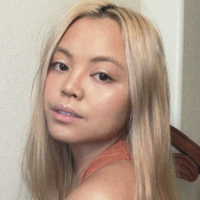
Julia Espero '18
Digital and Print Designer
1. Exactly what do you do?
I am an independent graphic designer and consultant.
2. What was your first job out of college?
HR at a large tech company.
3. Describe a critical moment in your career trajectory.
Deciding to freelance and move to NYC to build out my portfolio! I created a lot of work on juliaespero.me by learning from other designers and industry trends.
4. How do you sustain your creative practice, from meeting financial needs to staying motivated?
It's a 50/50 balance of working on client work and personal projects. So much of creative work is about finding it and building relationships.
5. What advice do you have for current students about what they should be doing now?
Try taking on freelance projects for the artistic dream job you have. Find a mentor, reach out to an agency, ask if you can learn about the how to write good contracts, calculate your rate, and other important but gritty details of working as a creative. Leverage your status as a student to ask literally anyone anything you want.
-Julia Espero(she/her)
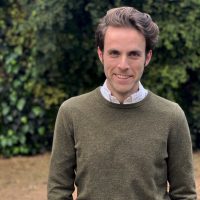
Mason Flink '10
TV Writer & Director
1. Exactly what do you do?
I am a writer/director of television and streaming new media.
2. What was your first job out of college?
I helped start the development/production team for Hulu Originals as the department coordinator.
3. Describe a critical moment in your career trajectory.
For three years, I was a "nights and weekends" writer while doing my full-time job at Hulu, but I reached a point in the development executive track where I could no longer successfully split my focus. I decided to quit my steady gig in the hopes of finding a job that would get me closer to my ultimate goal of being a professional screenwriter. I ran out of money before I could find that job, was fortunate to have my parents help me for two months, then I found some freelance writing work that sustained me until I landed a writers' assistant position later that year.
4. How do you sustain your creative practice, from meeting financial needs to staying motivated?
It is not easy to be financially secure in Hollywood if you don't have supplemental help. This is a vertically-integrated business that thrives off of free work at every level, so you have to be smart – teach yourself how to cook, explore communal living, share passwords. Once you get a toe in the door, you try to save up as much as you can while you're on a job so that you can stretch in the months off with a combination of savings and unemployment. That time when you act as your own boss is crucial for developing your voice as a writer, for producing the spec scripts that will eventually get you noticed (it won't be the first one, trust me). I'm a big believer in journaling, in reading non-fiction, in using art as a vehicle to process trauma. I also firmly believe in the importance of community-building, so I surround myself with as many sensitive artists as I can.
5. What advice do you have for current students about what they should be doing now?
Don't move to Los Angeles. The only people who are working are screenwriters who have already broken into the business, and it isn't clear when we're going to have sets and writer's offices running again for you to start apprenticing. Find a place where you feel safe, and try to be as present as you can in this moment of transition. Our society is undergoing a massive shift, and we need your generation to be paying attention to how things change. Read about other periods in history that featured mass upheaval, structural reimagining, the chorus of the avant-garde. Cultivate a relationship with your curious voice. We have all radically slowed down, so in these moments of quiet, see what that voice wants to read, to explore, and follow it. You are entering the process of removing the guardrails from the type-A ambitious life you've experienced until this point. Get off of social media. Keep a journal. Be nice to yourself.
-Mason Flink (he/him)
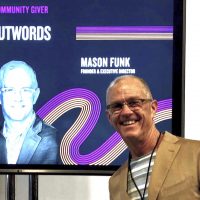
Mason Funk '80
Executive Director, The Outwords Archive
1. Exactly what do you do?
After 25 years writing and producing non-fiction television programs and documentary films, I founded The Outwords Archive with the mission of recording and sharing the stories of LGBTQ+ pioneers and elders all across America.
2. What was your first job out of college?
Teaching English at a private school.
3. Describe a critical moment in your career trajectory.
Meeting a guy on the street in Lisbon, Portugal who worked in television, which led to my first job as a TV/film writer.
4. How do you sustain your creative practice, from meeting financial needs to staying motivated?
I breathe. I write. I meditate and practice yoga. I exercise and get my heart rate up. I resist the temptation to work 24/7. (My husband helps with that.)
5. What advice do you have for current students about what they should be doing now? *
Oh gosh. First, that word "should" is a major problem. We all place so many expectations on ourselves, including what we "should" do. It's hard when we're surrounded by amazing, artistic people who are doing amazing things - the tendency (at least on my part) is to freak out and think I "should" be doing what they're doing! No. Resist that. Look inside. Dig deep. Listen to your own voice, and follow that. Let your conscience and your intuition be your guide. The only hard-and-fast rule I would make is, you must practice your art every day - except on the very important days when you consciously decide to take a breather. Other than that: steady, steady, steady. Practice practice practice. Breathe breathe breathe.
-Mason Funk (he/him)
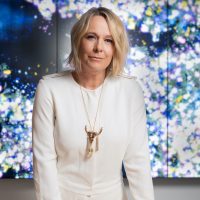
Christy MacLear '88
CEO, Superblue
1. Exactly what do you do?
CEO of an Experiential Art Company representing artists such as TeamLab, JR, Leo Villareal, DRIFT, Es Devlin among others. Opening large scale centers for ticketed art experiences. Created from a partnership between Pace Gallery and Emerson Collective as a new B-corp for art to have a broader platform for dialogue and impact.
2. What was your first job out of college?
Real Estate Financial analyst /Trammell Crow
3. Describe a critical moment in your career trajectory.
Becoming the Executive Director of the Philip Johnson Glass House for the National Trust - when my past experiences started to converge (real estate, business strategy, starting up organizations, cultural leadership) and I was able to change a model/approach. This helped me understand what i was good at and where i needed to focus my future opportunities and growth.
4. How do you sustain your creative practice, from meeting financial needs to staying motivated?
I just look for the white space. Where are the challenges which people avoid change; where does a risk seeking viewpoint create new paths. Staying in that space motivates me beyond other measures.
5. What advice do you have for current students about what they should be doing now? *
Recognize first that arts & culture do not have linear or prescribed hiring processes. Entering the field requires following your instincts, building your networks, taking projects which may grow into jobs, becoming a part of the creative community. Opportunities start with research, participation and reaching out.
- Christy MacLear (she/her)
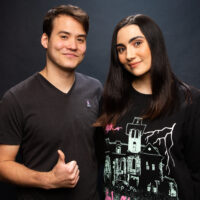
Safiya Nygaard and Tyler Williams
Digital Media Creators
1. Exactly what do you do?
We operate a digital media business, centralized around our Youtube channel - which is named after Safiya. On the channel we produce long form videos where we investigate beauty and fashion trends, as well as general internet weirdness, like those hack videos you see on Instagram that seem too good to be true, and advanced crafting tutorials. We’ve also dabbled in travel content, having done two multi-week production trips to East Asia, and started a few of our own weird internet trends along the way – one series in particular, “Bad Makeup Science” has featured us baking a lipstick cake and melting every lipstick from Sephora together.
2. What was your first job out of college?
Safiya: I bounced around as an intern at different production companies in LA for about a year before landing at Buzzfeed, where I did production work for a few years.
Tyler: I worked at Disney, doing corporate finance and internal consulting, so pretty different, pretty corporate.
3. Describe a critical moment in your career trajectory.
I think our first production trip to East Asia was a critical moment. We were being the right amount of impulsive with just going and filming and producing stuff that we were excited about, even if it was something we hadn’t done before – so “outside of our comfort zone” kind of stuff. The content we acquired there was great – it was a really fun experience – and we hope that we’ll be able to go back at some point to produce more. Overall, I think it was an opportunity for us to expand our brand and branch out as video producers. We learned a lot from that trip, and although our content had already been evolving and changing a lot before that, it was a bit of an inflection point for how we approach the channel.
4. How do you sustain your creative practice, from meeting financial needs to staying motivated?
We subscribe to the idea that if we make stuff that we’re interested in and that we’re proud of, financial goals will sort of follow. Said another way, we think it’s really important to put the content first. A lot of the digital revenue models are about passive income. There are brand deals, there is merch - we don’t love those routes because they, frankly, aren’t passive. So I think a cool thing about YouTube is that if you focus on the content, and people like it, then the revenue follows.
5. What advice do you have for current students about what they should be doing now?
I think probably just cultivating your interests - find things that you’re passionate about that you want to talk about, explore, and tell stories about. And we both really think it’s important to keep an open mind about new digital platforms & how they fit into the entertainment landscape. They’re constantly evolving, their communities and audiences are evolving, and they’re a big piece of how people consume content. And although it can seem overwhelming to try and understand something new, if you want to be in “modern show business”, having an understanding of how people consume content is key.

Atheel Elmalik
Screenwriter
1. Exactly what do you do?
Currently, I am writing and developing my first feature film project.
2. What was your first job out of college?
A 12 months paid internship in the department of Media and Performance art at the Museum of Modern Art in New York.
3. Describe a critical moment in your career trajectory.
Three moments:
1. Interning at the Studio Museum in Harlem my Junior year of college.
2. Meeting Arthur Jafa (AJ) for lunch at a Senegalese restaurant in Harlem after meeting him at a Christina Sharpe reading at Columbia University. It was a beginning of a professional relationship and friendship which led to me moving to LA to work with him a couple of years later.
3. Speaking what I want to do in the world with clarity and precision (to write and direct movies) and being met with extraordinary support from the company I was working on starting with AJ and his business partner Melinda Nugent.
4. How do you sustain your creative practice, from meeting financial needs to staying motivated?
Aiming to have my creative practice and my spiritual practice be the same practice is what sustains me creatively, and materially. Understanding that as an artist, and a writer, the work doesn’t always look like sitting down at my computer and writing. Sometimes the work looks like looking out of a window and thinking. Sometimes the work looks like reading. Getting to know the unique and ever changing rhythms of my body and my work is the gift that allows me to cultivate the grace and discernment (especially around when to rest, and when to rise) that is needed to be sustained creatively.
5. What advice do you have for current students about what they should be doing now?
Spend time with work that you resonate with and try to understand or contemplate what it is about that work that resonates with you.
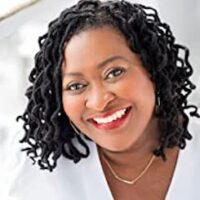
Sylvia L. Jones
Screenwriter and Journalist
1. Exactly what do you do?
I am a writer and producer for TV and film. I most often work in writers’ rooms where I collaborate with other writers to pitch ideas, write scripts and work on set to bring a television series to life. As a screenwriter, I also pitch concepts and write films.
2. What was your first job out of college?
My first career was in broadcast journalism. In my first job, I was a freelance news writer on the morning show for the FOX affiliate in Chicago. After changing careers in 2016, my first job in the entertainment industry was as a production assistant in the Props department on CBS’s Criminal Minds: Beyond Borders. My first job in a writers’ room was as the writers’ assistant on Showtime’s The Chi. After the showrunner (head writer/executive producer) took notice of my work, I was offered the opportunity to co-write an episode of the series, allowing me to earn my first professional writing credit.
3. Describe a critical moment in your career trajectory.
After receiving a recommendation from a director with whom I had worked, a film producer called and asked if I’d be interested in pitching a movie about the legendary singing group, The Clark Sisters, to Lifetime. I pitched my heart out, earned the job, then wrote the movie which actually got made – not a small feat! The movie offer came while I was in my first full-time job as a staff writer on the USA Network’s Suits spinoff, Pearson.
4. How do you sustain your creative practice, from meeting financial needs to staying motivated?
I have been blessed to remain employed since I changed careers. However, you never know when your last project will be your last project. This is not a traditional industry where you get a job, stay on it for 40 years and retire. It more closely resembles the gig economy where you always have to hustle for your next production. That cycle both fuels and drains me. I always keep ideas brewing and work on them when I can find time. Having several projects in process simultaneously helps keep me alert. When I hit an impasse on one project, switching to a different one often stimulates my brain in a creative way. As hard as I work though, I find it imperative to also rest and recharge. Burnout is the best way to kill creativity.
5. What advice do you have for current students about what they should be doing now?
Students should constantly work to hone their craft. Write your own scripts. Direct shorts. Act in local theater. Take advantage of every outlet you can find to do what you eventually want to get paid to do. If you don’t see opportunities, create them for yourself. Also, get to know as many people in the industry as you can – even if it’s through social media. The film and television industry is built on relationships.
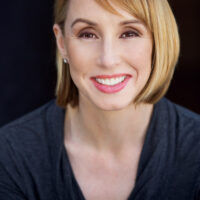
Kira Snyder
Screenwriter/Producer
1. Exactly what do you do?
I am a screenwriter-producer. I’ve worked mainly in TV but also some in features. Currently I’m Executive Producer and Co-Showrunner of Demimonde, an upcoming new show from J.J. Abrams that will air on HBO, which means in addition to writing scripts and supervising other writers, I am a decision-maker for all aspects of the show from pre-production through filming, editing, and release. In addition, I also have a number of side projects in various stages: researching, writing, pitching. I’ve written original projects but also worked on many adaptations of books, comics, and other media, most recently The Handmaid’s Tale for Hulu.
2. What was your first job out of college?
I was Assistant Drama Instructor and Resident Counselor at the Castilleja School in Palo Alto. I taught some classes and advised the drama club, and was basically one of three RAs in the dorm for the students who lived on campus.
3. Describe a critical moment in your career trajectory.
At the time I was trying to figure out how to make a living in the theatre, those early years after Stanford, I was also playing a lot of computer games. I’d always been a gamer but now I considered actually working in that field. I went to graduate school with that in mind, earning my Masters from NYU’s Interactive Telecommunications Program, and went on to a very rewarding career as a computer game designer. I did eventually circle back around to dramatic writing, but my years in technology gave me an interesting background, professional and managerial skills, and a grounding in “the real world,” all of which has served me extremely well in Hollywood, much more so than if I’d gone to film school to moved to LA right after graduation.
4. How do you sustain your creative practice, from meeting financial needs to staying motivated?
Being a screenwriter is creatively nomadic, something I once found unsettling but now embrace. Each new project or show provides a new story world to immerse yourself in and the opportunity to learn. More practically, every new job or project is potentially the gateway to another. People you work with on a show that gets canceled might call you up to see if you can work on their next one. A screenplay that doesn’t sell might get you a meeting for a writing job on another screenplay. As for staying motivated, the kind of deadlines we deal with in TV are very motivating! On my own projects, I work at staying disciplined in moving the ball down the field while also acknowledging the importance of rest: that can be as important as the work.
5. What advice do you have for current students about what they should be doing now?
Find opportunities to practice what you want to do: if you want to be a writer or producer, write or produce something. If you want to be a filmmaker, make a movie. Any creative collaboration is terrific practice for Hollywood. As a student, you’re in a great place to experiment and fail safely. Failure always contains lessons, including how to develop resilience, which is essential in most industries but especially entertainment. Interesting experiences and following your curiosity will feed your creativity, so try new things, in classes or otherwise, such as Overseas Studies. Embrace the possibilities in fulfilling your general education requirements – I took astrophysics to fulfill a requirement and it reignited my childhood love of science, which still drives me and my writing today.
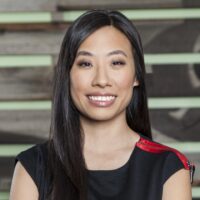
Maureen Fan
Co-Founder and CEO, Baobab Studios
1. Exactly what do you do?
As the CEO of Baobab Studios, the 6X Emmy winning animation studio, I lead my team to achieve our mission: Inspire the world to dream by bringing out their sense of wonder. Make YOU matter. I make sure every person in the company understands that mission and that all the decisions we make whether it’s my decision or an employee’s decision help us to achieve that mission. We create IP (stories and characters) that transcend any particular medium. For example, we created Invasion! for VR and then signed a deal for it to become a feature film and are also turning it into a game. I define the culture for our studio by how I structure the organization and how I make decisions or delegate decisions. I set goals and milestones for the studio so they know what success means. I’m in charge of the business of the company – making sure we have money to do what we need. I set our company’s business strategy with the data and advice of those in my team. A typical day is full of meetings, since my job is to align people. As an entrepreneur I also wear other hats. I’m the business development person for my company too. The best part of my job is when I can read or watch the creative we do and give comments and feedback. That being said, I’m not the head creative so I trust my Chief Creative Officer to make the final decisions on creative.
2. What was your first job out of college?
I was a usability engineer at eBay. I researched how users bought and sold on eBay and recommended changes to the UI/UX of our site. I lived in different countries for months at a time, studied culture (e.g, how they shopped), and made recommendation of how eBay should enter that country or change our offering for that particular market.
3. Describe a critical moment in your career trajectory.
I had launched FarmVille 2 as General Manager at Zynga. I was pretty pleased with myself given how well the game was doing. My boss, Tim Letourneau, who was the Chief Creative Officer, told me to send an email to Mark Pincus, who was CEO, asking for even more resources. I didn’t want to make more asks and thought I should just be grateful for the success we had. I did what Tim advised that I did however, saying “give me x y z more $$$ and staff, and I can achieve even better results for you.” Mark reacted really well to that and gave me what I asked for. He felt I wasn’t satisfied with good – that I wanted GREAT. That’s the type of ambitious person an entrepreneur CEO wants in their company. I learned to be aggressive and always ask for more if I feel I can do better. I stopped holding back. That did wonders for my career.
4. How do you sustain your creative practice, from meeting financial needs to staying motivated?
It’s difficult. First I motivate different disciplines differently. For example, I may motivate the engineers and business people with metrics and clear goals. For artists, I often talk about their emotions. Also I made sure that we had 3 equal co-founders, business, technical, and creative to make sure that no 1 discipline dominates another. When making tradeoffs, I ask the team to bring me the impact of decisions through the lens of cost, quality impact, and team morale impact. By calling these out explicitly everyone understands that I understand all the impacts and that I’m making a decision based on my prioritization of those impacts. There’s no room for interpretation.
5. What advice do you have for current students about what they should be doing now?
Stanford is an outlier in universities – Stanford encourages you to TRY everything! The quarter system lets you take more classes and you’re not required to declare a major until you junior year. Take advantage of that and try out as many topics as possible to learn what you love. Also you’ll start to see that different disciplines have more in common than you think. They teach you how to think with different paradigms. At the same time, liberal arts colleges can be lacking in teaching you practical skills. That’s where your side projects and internships are really valuable. You want to leave college knowing how to think better than others, but also with some hard skills. Don’t stress out about what you’re going to do when you grow up. I expect to have many careers in my life, because that’s how you keep growing and feeling fulfilled. I never want to be stagnant! Just do whatever you’re doing now well and the people who are working with you will respect your work ethic. They will later help you in whatever endeavors you pursue. I was a UI designer, Usability engineer, cultural anthropologist, Product Manager, assistant to Zach Braff and Joseph Gordon Levitt’s talent manager, and production assistant, Executive Producer, GM, VP of Games, and now an entrepreneur. I was stressed a lot of the time thinking I wasn’t on a straight path. I wish I hadn’t been so stressed because it all worked out and all of those experiences were invaluable. They helped me do the next thing. The people I met in each of those experiences are so different and helped me see the world in different ways – and they help me to do this day in my current role. Doing all those things give me the ability to empathize with all sorts of people and makes me a better manager and leader because I can balance all the disciplines.
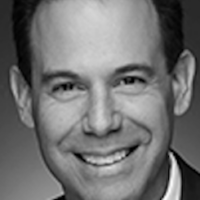
Noah Fogelson
Film Executive
1. Exactly what do you do?
I’m currently Co-President and General Counsel for ErosSTX, which really means I oversee a large portion of our business. In this case, the US based executives in scripted and unscripted television report to me and I work closely with the Chairman of the Motion Picture Group with respect to our US-based film business. Our UK-based International team also reports up through me, as do our global business affairs and legal teams. Thankfully, the CFO oversees all financial operations for our business and I have a colleague (our other Co-President) who oversees our Indian business including both the studio business and our OTT digital streaming platform, ErosNow.
2. What was your first job out of college?
I went directly from Stanford undergrad to Berkeley law. My father started working in the film industry at Warner Bros in 1970 and my older brother started working in the film industry on the marketing side right after he graduated from Stanford in 1989, so I actually had no intention at all of getting into the entertainment business and my first job after law school was working at a large law firm focusing on antitrust litigation. You do that for a few years, though, and getting back into the entertainment industry turns out to be a great thing.
3. Describe a critical moment in your career trajectory.
I’ve had several. Making the decision to stop litigating (even entertainment litigation) and start focusing on corporate transactions, often for media and entertainment companies, was a critical moment. At least in my own head I was actually a pretty good, young litigator and was having some real success. But I just didn’t enjoy it enough and thankfully I came to that realization before too much time had passed. That change ultimately led to an opportunity to go in house with a kids television and brand management company and I effectively reinvented much of my career path.
4. How do you sustain your creative practice, from meeting financial needs to staying motivated?
I know many of the students are focused on the creative side of the industry and want to be involved in some way in the creation of content. I’m really a deal guy. I love doing deals. I love finding ways to enable people like these students to be able to produce commercial content and effectively distribute that content to the intended audience in the most cost-effective way possible.
5. What advice do you have for current students about what they should be doing now?
Three things: First – try to figure out what you’re passionate about and how you can work toward getting to do that. Are you going to be any closer to that goal tomorrow than you were today? Second – really commit to giving 100%. That doesn’t mean give up the other things in your life that are super important – like family – because I promise you that success without family or friends can be pretty miserable for most people. But it does mean that there are thousands of other really bright students looking to do the very same thing that you’re looking to do and even with the significant changes in the industry, which in many ways are expanding the field of opportunities, I’m not sure it’s really expanding the number of opportunities – just broadening the pool to include more diverse points of view. That’s a great thing, but it means you still need to work really, really hard. Third – take advantage of the fact that there are a number of amazing alumni who are doing incredible things in our industry and are actually willing to try to help. Definitely be aware that they may not be able to get back to you as quickly as you hope (just ask the directors of this program about that) but there are many of us who like the idea of trying to give back and be helpful. Find a polite way to take advantage of that.
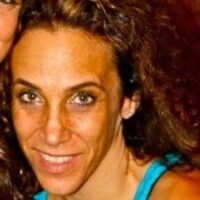
Lisa Fragner
Animation Studio Executive
1. Exactly what do you do?
For the past 18 years, I headed up feature animation development at Blue Sky Studios and oversaw the creative development of four-quadrant all-audience theatrical features as well as acting as an executive producer overseeing creative on our films in production. Most recently, I have joined Disney TV Animation to oversee creative development on animated Disney Channel TV shows in the 6 to 11 age range as well as a slate of premium animated four-quadrant limited series for Disney Plus.
2. What was your first job out of college?
My first job out of college was as a production assistant on commercial productions.
3. Describe a critical moment in your career trajectory.
I took a second assistant/internship job at Fox Searchlight after spending two years on set in physical production. That decision launched a quick rise within the studio system as a developmment executiive! Getting my boss a spec script that was a “hot” indie comedy script around town when I was still an assistant before any oof the actual development executives allowed me to secure a promotion to creative executive!
4. How do you sustain your creative practice, from meeting financial needs to staying motivated?
For me, walking in nature or running in nature has been my saving creative grace. I have tried to use my mornings walking my dogs on the nature trails in my area to clear my brain and focus both creatively and on specific business issues at hand!
5. What advice do you have for current students about what they should be doing now?
Try and find what you love spending your time on and pursue that with your whole self. Make it your business to know everything you can about what you love- do the research and really prepare for the meetings, the informationals, the interviews! We spend so much of our lives “working”, we should make sure that we are doing something that satisfies us in our soul (this is my personal opinion of course!). And if you love creating in any way, writing and/or directing, then pursue that NOW, while you are young and have the time and the fire in your belly. You all have so much time… much more time than you realize to get on a successful career track. So first, pursue what you love!! And do it wholeheartedly! I am all about pursuing your passions in order to feel fulfilled. At the end of it all, you can’t take it with you but if you love what you do, you never really “work” a day in your life!
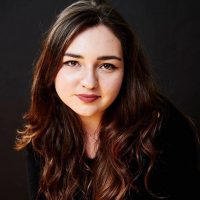
Siena Streiber '18
Showrunner's Assistant
1. Exactly what do you do?
I handle the work (and sometimes personal) life of the head writer / showrunner / executive producer of a TV show. I help make her life easier by organizing meetings, handling paperwork, doing research, and other odds and ends to take things off of her plate.
2. What was your first job out of college?
I worked at Madewell as a sales associate.
3. Describe a critical moment in your career trajectory.
Getting that first "yes" after a handful of "nos" and lots of informational interviews was a big win for me.
4. How do you sustain your creative practice, from meeting financial needs to staying motivated?
I try to work a lot on my own writing and other creative pursuits in my free time when I'm not working. Since I work as an assistant, a lot of my writing has to be on my own time, so carving out time for that is important.
5. What advice do you have for current students about what they should be doing now? *
Doing as many informational interviews as you can, whether in person or via email/phone is always a great first step. Getting your foot in the door means reaching out to as many people as possible from as many different ends of the industry that you can think of. Also -- work on your own creative work! People love knowing what you're working on, and it looks good to be able to tell someone you are working on a script, directing a short, writing sketch comedy, making music, etc.
-Siena Streiber (she/her)

Nia-Amina Minor '12
Company Artist, Spectrum Dance Theater
1. Exactly what do you do?
I'm a movement artist dance educator. I often create work that is interdisciplinary and focuses on the body in social, political, and digital contexts. Through dance, I investigate black realities and the intersection of movement, memory, and rhythm. Currently, I am in my fourth season with Spectrum Dance Theater as a Company Dancer and Community Engagement Artist Liaison.
2. What was your first job out of college?
Marketing for Alonzo King Lines Ballet.
3. Describe a critical moment in your career trajectory.
After graduate school, I co-founded a multidisciplinary collective based in Los Angeles called No)one Art House. It was a critical moment to determine and voice a shared vision for the arts. As a collective we worked to create collaborative structures and projects through which that vision could be explored.
4. How do you sustain your creative practice, from meeting financial needs to staying motivated?
It's a constant challenge but I made a commitment a long time ago to my craft. It's that commitment that fuels me through ups and downs.
5. What advice do you have for current students about what they should be doing now?
As you are moving into your passions and fields of labor, check in with yourself to navigate pressures. Only you truly know where you want to be and what you see yourself doing. There's a lot of noise that makes it hard to get clarity. Be patient with yourself.
-Nia-Amina Minor(she/her/they/them)
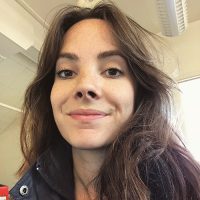
Sabrina Bedford '13
Freelance Artist
1. Exactly what do you do?
I'm a freelance artist, illustrator, and book designer, and I'm the program manager for a public art initiative called Art in the Parks at the Golden Gate National Parks Conservancy (non-profit). I've worked at the Parks Conservancy for over 6 years (since graduating college). My role has evolved a lot and I've had the pleasure of working with hundreds of artists, local and from around the world, tackling complex issues in national park settings. Throughout that time I have also published two books which I wrote and illustrated, and illustrated and/or designed a dozen others for clients.
2. What was your first job out of college?
Art Intern at the Golden Gate National Parks Conservancy. I got the internship through Stanford's Arts Internship Program.
3. Describe a critical moment in your career trajectory.
Probably this year - I'm leaving the Parks Conservancy to go back to school to get a Masters in illustration and visual development at AAU. After spending so long with a full time job and doing freelance, I've decided to fully invest in my creative skills. My time at the Parks Conservancy has served me well - I've gained a lot of professional skills there which will undoubtedly help me in whatever future positions I hold.
4. How do you sustain your creative practice, from meeting financial needs to staying motivated?
I'm sure art students still hear this, but I was told many times by other students at school that I should get a major in computer science, engineering, biology, something useful that would make me "money", implying I wouldn't get a job with an English/Art degree. They told me "Oh you can always go to law school or business school," implying I would need more education to get a job. I've worked at the same organization since graduating, which covered my financial needs (as best as non-profit positions can) and have had more job stability than some of my friends with other degrees. That tells me if you are pursuing what you love and you are willing to work hard, you will be fine - there is a job for you somewhere and your talent will be needed and appreciated. Don't be afraid to take a job that's different from what you intended. Though my role at the Park was not creative itself and not at all what I thought I would be doing after school, it improved my creative practice. I was constantly surrounded and challenged by creativity of artists who inspired me in so many ways, who were using art to push the envelop and take on social justice issues in a time when we need it most. With time, and through this exposure, I gained a deeper awareness of my own creative skills and passion. Last year, I actually reduced my work hours at the park to 4 days a week, increasing my time for freelance projects, allowing me to dip my toes further in the freelance industry while still paying bills.
5. What advice do you have for current students about what they should be doing now?
First, of course, right now it's a difficult time for everyone, unprecedented circumstances, especially for students. Stay open minded. Aim high, but don't panic if you don't get the "job" or summer internship you thought you would. Any role or position you can take will only either add to your overall skillset as a professional, or can be something you use to enhance or deepen your understanding of creativity and your own passion for art. In fact, what we're all going through right now (and how we handle it) can make us stronger as individuals and artists. Second, I can't speak for all employers, but I know when I've hired interns or other roles in my job, we almost never look at the GPA. Grades are great as a learning tool, but don't let them bring you down for too long or get too attached - the "real world" wants to see what you can do, what you're excited about, and if you've got the skills. I wish I knew that as a student! So do your best and enjoy Stanford's incredible resources and experiences. Lastly, apply for those art grants!
-Sabrina Bedford (she/her)
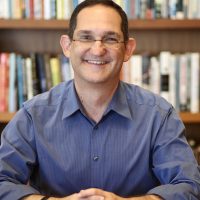
Adam Tobin '93
Senior Lecturer, Screenwriting
1. Exactly what do you do?
Teach screenwriting at Stanford. Write musicals for children and tv/film scripts.
2. What was your first job out of college?
PA on a low-budget film crew.
3. Describe a critical moment in your career trajectory.
I was burnt out from working in LA, had come to the end of my "five year plan" and didn't have any clear future in sight, had anxiety attacks. I visited New York and got a rush of energy and new possibilities. I thought moving there would be worse for me professionally but better in other ways, and it ended up better for me professionally.
4. How do you sustain your creative practice, from meeting financial needs to staying motivated?
It's tough. Building up a path to a regular stream of income takes a while. And the day job takes over your time. (Like classes do during school.) You have to carve out "sacred," protected time for doing your art. I find anything that creates external deadlines to be helpful -- writing groups, contests, meeting with someone.
5. What advice do you have for current students about what they should be doing now?
1) Always keep developing your portfolio of work. Write, act, sing, direct, whatever. 2) Network in an authentic way -- find people you like and respect and trust and keep them in your life; you don't know how you'll help each other in the future. Join clubs, do projects with others, take arts classes. 3) Eat. Take care of yourself. Find a way to (eventually) pay your bills.
-Adam Tobin (he/him)
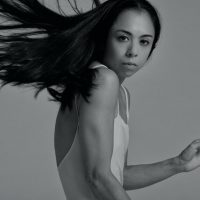
Katherine Disenhof '12
Founder, Dancing Alone Together
1. Exactly what do you do?
I'm running a new digital project called Dancing Alone Together and the Marketing Manager at Alonzo Kings LINES Ballet.
2. What was your first job out of college?
Program Coordinator for the Alonzo King LINES Ballet BFA Program at Dominican University of California.
3. Describe a critical moment in your career trajectory.
After five years of hustling in the Bay Area for freelance dance and graphic design work, I felt burnt out and decided to take a two-week "dance vacation" by participating in NW Dance Project's LAUNCH Intensive. That two week experience unexpectedly led me to my current job! I never thought I would have the opportunity to dance with this type of a company and I'm very grateful for the change in pace. I learned a lot of valuable skills from freelancing, but being able to focus in a full-time rehearsal environment has been refreshing.
4. How do you sustain your creative practice, from meeting financial needs to staying motivated?
I'm fortunate to be a part of a dance company that's a close-knit, supportive family of artists. When we're in season, the structure is in place for me to tap into my creative practice with no limits. On the other hand, I have found it challenging to stay motivated during layoff periods because it essentially feels like I'm killing time with no set objectives. I've found those stretches of time feel more fulfilling when I'm able to either build a new skill or focus on my side career of graphic design.
5. What advice do you have for current students about what they should be doing now?
This is a choose-your-own-adventure type of career, which means that you have to play an active part in steering it in the direction you want it to go. You can help achieve this by building your network as soon as you can to maximize your opportunities. The arts community is very interconnected and a lot of fortuitous opportunities are a combination of being in the right place at the right time and knowing the right people... and always work hard! You never know who might be paying attention. Work hard to know the ins and outs of your industry from the both business side and the artistic side. Nonprofit art organizations are notoriously understaffed and look for people who bring multiple skills to the table.
-Katherine Disenhof (she/her)
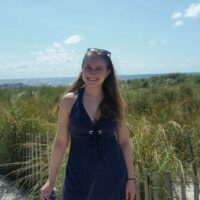
Tori Testa '18
Human Resources Generalist
1. Exactly what do you do?
I work at the Metropolitan Opera in Human Resources. My regular responsibilities include employee and artist on-boarding, recruiting, and writing our employee communications, including our Newsletter. I also have been working with our artistic team on the Met Competition, managing our employee database, and preparing for our Internship cohort!
2. What was your first job out of college?
My first job out of college was working as a Stand-In for the character of Nicole Fosse on the FX Show Fosse/Verdon.
3. Describe a critical moment in your career trajectory.
Receiving the call to work on Fosse/Verdon was a huge and exciting moment for me! I had worked on and off as a background actor growing up in New York, but this was my first experience being on one set regularly for 3 months. As a stand-in for a child, I rehearsed with the lead actors almost daily, which was a true masterclass in performance. The friends I made and experiences I had on Fosse/Verdon really inspired me to pursue working in the arts and with artists.
4. How do you sustain your creative practice, from meeting financial needs to staying motivated?
Inspiration from the people around me sustains my creative practice! I have been so lucky to be surrounded by creatives at work and in my personal life, and, whether it's starting a writing group or hearing about someones rehearsal day, it really helps keep my passion alive! I also love to discover new pieces and challenge myself to learn new things.
5. What advice do you have for current students about what they should be doing now?
My advice would be to try everything and that no part is too small!
-Tori Testa (she/her)
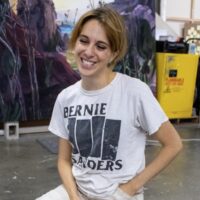
Emma Webster '11
Artist
1. Exactly what do you do?
Painting
2. What was your first job out of college?
Account management for digital advertising.
3. Describe a critical moment in your career trajectory.
Quitting my day job to pursue art full time. Also going to Yale for my MFA.
4. How do you sustain your creative practice, from meeting financial needs to staying motivated?
Diligence, grit, and Diet Coke.
5. What advice do you have for current students about what they should be doing now?
Making work, make work above all else, it's about hours, not talent.
-Emma Webster (she/her)
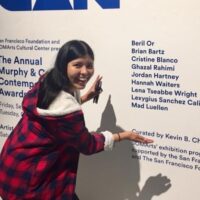
Lena Tseabbe Wright '16
Artist & Alumni Relations Coordinator
1. Exactly what do you do?
Currently alumni relations coordinator for the Office of Undergraduate Admission at Stanford University as my day job. In my spare time I continue to make and showcase visual art.
2. What was your first job out of college?
After graduation I ended up going home to spend time with family. It was during that time that I was working part time for my high school as a substitute teacher. I took teaching/tutoring courses at Stanford through the Haas center and wanted to continue that practice. Eventually that led me to wanting to pursue a MFA to teach at a college level.
3. Describe a critical moment in your career trajectory.
Graduating from graduate school with my MFA at the beginning of the pandemic. Not only was it a turning point in how I would continue my art practice (especially given the timing of everything on a global scale), but due to the circumstances surrounding my graduate school caused me to reevaluate how I wanted to navigate a career in higher education beyond teaching.
4. How do you sustain your creative practice, from meeting financial needs to staying motivated?
I am at my peak in both continuing my practice on a creative and a physical level. Having a full time job not in visual arts actually helps keep me concentrated when I do pick up a pencil or paintbrush. As a working artist, it felt like my practice was heavily tied into everything I did. Now I go to work in a field I love as well as create art on my own terms. I'm making art that I want to see and experience rather than forcing art that will get me a paycheck.
5. What advice do you have for current students about what they should be doing now?
Apply to artist residencies even those outside of the country. Best residency I went to was the Vermont Studio Center for a month in printmaking that paid for my room, board, and travel through a grant. Not only will you get a change of scenery, but you may also find yourself interacting with other artists at different stages in their careers who will have lots to offer.
-Lena Tseabbe Wright (they/them)
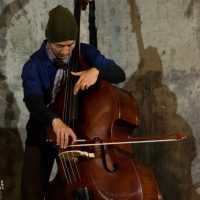
Adam Fong '03
Producer / Performer / Cultural Entrepreneur
1. Exactly what do you do?
I'm an active composer, performer, and producer of new music. I've also built up a career in arts administration in the Bay Area, with a focus on cultural entrepreneurship. My current day job is in philanthropy - I'm a program officer in the Performing Arts Program of the William and Flora Hewlett Foundation. We make grants to support arts and culture throughout the Bay Area.
2. What was your first job out of college?
My first job was as an administrative assistant for the San Francisco Opera Center. I'd done an internship with the opera in my final semester at Stanford, so I had a strong internal referral.
3. Describe a critical moment in your career trajectory.
After six years working for a new music non-profit, Other Minds, I left the stability and security of that salaried job to focus on two projects I had co-founded, both of which were fairly nascent. One of them, Emerging Arts Professionals, had grant funding but no long-term business model. The other, Center for New Music, was still just a paper concept (but we did have a business plan). This was a formative moment not only because it plunged me deep into some "action learning," but it also signaled that at that moment I wanted to adapt my work life, and was willing to take a variety of risks to explore new possibilities.
4. How do you sustain your creative practice, from meeting financial needs to staying motivated?
Most important for me is having a social network that keeps me accountable. Because I choose not to rely on my personal creative practice for financial support, my friends and collaborators help me keep momentum when other life demands bog me down. Also, over time I've recognized and adjusted what parts of my practice I can fit into different moments of life. At different stages I've wanted to emphasize different things, which have included learning, research, collaborative experimentation, written output, recorded output, performing my own work, performing work of others, performing for money or social reasons, etc. I've found that "balance" mostly means figuring out what fits in with my other activities, and making sure it's sufficient to keep feeding my creativity over the long-term. Apart from health and family, creative practice is the only lifelong commitment I consciously pursue, so it's important for me to keep that perspective in mind.
5. What advice do you have for current students about what they should be doing now?
My advice is to go deep with what's available to you. That might mean taking advantage of opportunities, reflecting deeply on what you're experiencing, interrogating the systems you're a part of, investing time in the people around you... this, I think, is different for everyone. It's great to have ideas about what the future may hold, but I think that should never come at the expense of challenging yourself to go as deep as possible with the situation you're already in.
-Adam Fong (he/him)
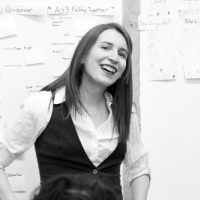
Leanna Keyes '14
Theater Artist
1. Exactly what do you do?
I am a multi-hyphenate theater artist and professional. Various hats I wear: playwright, producer, stage manager, electrician, sensitivity reader, dramaturge. My work is about portraying authentic queer and trans lives: past, present, and future. For more details, visit leannakeyes.com
2. What was your first job out of college?
Stage manager for Dreamgirls at Broadway by the Bay in Redwood City, CA
3. Describe a critical moment in your career trajectory.
In the fall of 2018, I decided to apply for an artist residency. I got to spend three months focusing almost exclusively on producing new art and (arguably more importantly) marketing my work to producers and companies. Through connections I made there, I managed to book a solid six months in 2020 where one of my plays will be on a stage in the United States.
4. How do you sustain your creative practice, from meeting financial needs to staying motivated?
Collaborators. If I have someone else who's relying on me to do my best, and I know they'll be doing the same, I find it way easier to get the work done. Art doesn't exist in a vacuum. Other artists inspire me to be better and do more. This even extends to financial realms--I do what I can to make sure that everyone on my teams is compensated fairly, and the art and relationships are better for it.
5. What advice do you have for current students about what they should be doing now?
Document, document, document. If you make some of the best art in the world but you don't have a way to share it with other people, you'll find it much harder to get future resources. And what at the time seems easy to remember may fade later on. Keeping written records, photos, videos, and mementos will make your life so much easier.
-Leanna Keyes (she/her)
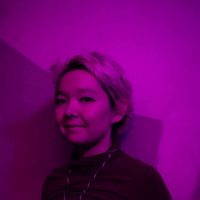
Patty Kim Hamilton '17
Playwright, Performance Artist, Theatremaker
1. Exactly what do you do?
I am a freelance playwright, dramaturg, and solo performance artist. Occasionally I also direct/performance choreograph and do creative consulting/project management. Most of my focus at the moment is on playwriting, however, as I'm in a Playwriting graduate program at the University of the Arts in Berlin.
2. What was your first job out of college?
During my senior year at Stanford I started working for a college admissions consultancy. I loved working with younger students (usually with interests in the arts, humanities, and/or social sciences), exploring how to express themselves through writing. I decided to take this on as my 'day' job because it was something I enjoyed, which was also possible to do remotely. Since I had already decided I would be moving to Berlin and pursuing an artistic career I knew I needed the greatest degree of possible flexibility and financial sustainability. Once in Berlin my first job was working as the artistic assistant to Gob Squad (performance collective) on their production 'CREATION: A Picture for Dorian'.
3. Describe a critical moment in your career trajectory.
I took a leave of absence/time away from campus between my junior and senior year to work in theatre and explore a few different cities as possible post-graduate landing points. During this time I worked in the Bay, New York City (through the Stanford in New York study abroad program and the support of a Jane Stanford Fellowship), and Berlin. In New York I had the chance to work with some of the most interesting theatres in new works development, and received incredible mentorship from artists who I still have strong relationships with. All of them encouraged me to spend a few years post-grad in Berlin, experimenting with my practice and finding my voice (which I ultimately have ended up doing). Now that I have built a significant body of work, this time and the connections to the artistic community in New York is proving extremely valuable to getting my work seen and heard. On top of all of this, my time away from campus allowed me to learn an enormous amount about playwriting, theatre, and performance (and myself), as well as the practical matters of establishing a (financially, emotionally, and physically) sustainable artistic practice. .
4. How do you sustain your creative practice, from meeting financial needs to staying motivated?
Engaging with this question has been the main focus of my emerging artistic life. As simplistic as it sounds, I find that balance and support are enormously important. To have a thriving creative practice, all the rest of the pieces need to be in place - this includes good physical health, mental health, adequate rest and off time, strong social/community support/accountability, and a creative practice that includes daily commitment and deadlines. The first few years of emerging, I prioritized art practice (motivated by public performances) over all the other, more foundational aspects of living, which resulted in a physical burnout. This has significantly changed me - I now have a very consistent daily practice and healthy rituals, which allow me to live in a more balanced way. My practice has become more focused on writing, and is supported by my self-organized deadlines as well as accountability through my artistic network. I also find it really important to constantly be feeding the artistic soul - through nurturing habits/rituals, as well as spiritual/daily practices and artistic/humorous/informative input. In the end, there is always the need to be creating, which ultimately results in me showing up for the work.
5. What advice do you have for current students about what they should be doing now?
My advice is to make lots of artistic work while in undergrad (experiment! Stanford is one of the most supportive spaces you can be trying things out with and getting funding to do so!) Soak up all opportunities to engage with work in and outside of your medium. Take advantage of trips, classes, internship and fellowship opportunities. Spend time with your professors, who want to support you. If possible, take extra time! (My time away from campus is when I learned how to write and how to navigate the professional artistic world). Invest in your relationships, as these will support and sustain you after graduation (and you might even be collaborating with some of these friends for a long time). Make a realistic plan for your post-graduate artistic life - consider how to financially support yourself in a way that will not detract from your creative work (I cannot express enough how important this is). Set yourself up (through Stanford support, student jobs, etc) with some degree of financial freedom for the first bit after graduation, to allow you some time to figure out how to orient yourself. Develop a self-motivated, disciplined and sustainable artistic practice (strong artistic friendships definitely help with this). Most of all, find joy in your practice :)
-Patty Kim Hamilton (she/her)
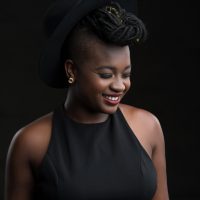
Jessica Lá Rel '14
Recording Artist
1. Exactly what do you do?
Singer-Songwriter, live performer, executive producer.
2. What was your first job out of college?
I took a fellowship right out of undergrad that helped pay the bills while I figured out the nuts and bolts of what it would take to launch my first recording.
3. Describe a critical moment in your career trajectory.
In 2018, I released my first full length album, War Love (available on all major platforms: Apple Music, Spotify, Youtube, etc). One of the songs won Best R&B song at the 2019 Independent Music Awards. Beyond the accolade, the moment was pivotal because unlike previous records, I finally gave myself permission on the album to take the time to ask myself the tough questions about who I am as an artist, what I want to say, and how I want to say it. Looking back, the album was my artistic statement, and I’m proud of that.
4. How do you sustain your creative practice, from meeting financial needs to staying motivated?
I constantly keep my eye out for grants. I crowdfund when necessary. I dedicate funds from my day job to support the work. Income from performances always goes right back into funding more projects.
5. What advice do you have for current students about what they should be doing now? *
There is no one right thing. But, if you feel an impulse to create, then do it.
Try to establish a discipline around your art. Set up a practice: I will [insert craft here x duration of time/extent] each day.
If your body tells you that you need rest, honor that. If your body tells you that you need air, open a window and let it in. That air may provoke thoughts that inspire the next big thing.
Learn to trust your gut in the midst of this prolonged silence; it will be an invaluable gift when the noise resumes.
If you already have a big idea, set aside time each day to work on it. Flesh out different aspects of it to give each day variety. Think about the 5 W’s of what you’re trying to accomplish, and generate a timeline of to do’s to unpack what it will take to realize your ideas.
-Jessica Lá Rel (she/her)
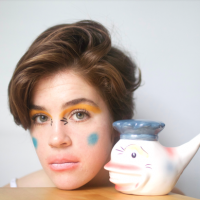
Laura Hunter Petree '15
Performing Artist
1. Exactly what do you do?
I'm a performing artist making work as half of the duo SHRETS and one third of the drag trio the Fuckbois. I am a collective member at WOW Cafe Theatre, where I am on the Finances team. For money, I work as the producer and archivist for the performance company Split Britches. I am also a freelance grant writer and producer for other performance artists.
2. What was your first job out of college?
Right after graduating I went on to complete a Masters in Theatre and Performance Studies at Queen Mary University of London. While completing my Masters degree I began working with a producing collective, which is now named Something To Aim For
3. Describe a critical moment in your career trajectory.
When I stopped thinking I needed to get a job at a big institution with a clear trajectory it really freed me up to follow what was exciting me. I started forming real relationships with people who inspired me, and letting them know that I was looking for work. That is how I've gotten every job I've had since graduating from Stanford. Committing to my work as a freelancer means I have the flexibility to take time off to focus on making performance, like taking a 3 month road trip last year as research for a new SHRETS performance project.
4. How do you sustain your creative practice, from meeting financial needs to staying motivated?
I feel incredibly lucky and privileged in the structures I have that help me sustain my creative practices. I have a financial safety net, a solid committed artistic partnership, and caring mentors. To meet my financial needs I have worked a lot of odd jobs, always making sure to have some sort of stable-ish work to supplement my freelance work with artists, like working at a bookstore or ghostwriting. To maintain motivation, having an artistic partner with a regular work schedule (we meet at least 3 times a week, MWF, for 3 hour rehearsals), supplemented by periodic DIY residencies has been invaluable. Working with WOW Cafe Theatre has given me a community and free space to make work in. Structure and community are the big things I know I need.
5. What advice do you have for current students about what they should be doing now?
I think the only thing you should be doing right now is learning to stop caring about what institutions want from you. When I stopped trying to mold my interests and my work to what I thought would go over well was when I started to have real conversations and develop real relationships with artists that excite me. Also, I think there is a lot more joy and fun in following opportunities and experiences as they present themselves, instead of trying to predetermine the path you will take to get to where you want to be.
-Laura Hunter Petree (she/her)
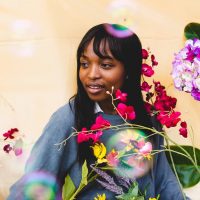
Olukemi Lijadu '19
Graphic Designer & Video Editor
1. Exactly what do you do?
I work for a small media company called Intelligence Squared. I edit our videos for YouTube, run our YouTube channel, now with coronavirus coordinate our digital events and I do all the design for our posters and social media.
I also freelance as a DJ as The Kemist, and I am a filmmaker. Last year a film I produced, What This Place Meant, premiered at BlackStar Film Festival and I am currently one of three producers on an exciting project due 2021. I do all of this alongside my job at Intelligence Squared.
2. What was your first job out of college?
I worked as an intern reporter for Quartz (online publication)
3. Describe a critical moment in your career trajectory.
Quitting my second job, which was at a start up in San Francisco, because I was deeply unhappy.
4. How do you sustain your creative practice, from meeting financial needs to staying motivated?
Honestly, it is all about community, having friends who love similar things and inspire me, keeps me eager to continue to create, share and collaborate with them. But it also means sometimes waking up early and sleeping late as I fit it around my 9-5.
5. What advice do you have for current students about what they should be doing now?
Following your passion, talking to as many people as you can, thinking realistically and critically about your own financial situation so you can craft a career that is tailored to you and, at least in my case, your family's needs.
-Olukemi Lijadu (she/her)
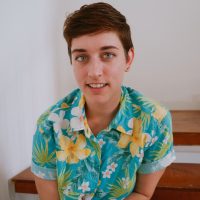
Nora Tjossem '15
Performance Artist
1. Exactly what do you do?
I'm a performing artist making live works as half the performance duo SHRETS and one third of drag trio The Fuckbois. This work makes me no money. I do professional voice acting and most recently moonlit as a bookseller for money.
2. What was your first job out of college?
Post-grad, I was a paid intern at Brooklyn Academy of Music (BAM) in their education department, then came on full time in various roles there for three years.
3. Describe a critical moment in your career trajectory.
The moment I recognized that a nonprofit desk job was neither heroic nor enabling me to make creative work was the day my brain came back to life. I started working at a beer and cheese shop, at a bookstore, recording audio erotica, and occasionally picking up stray gigs (voiceover, stagehand work, etc.) I guess it was actually the end of my clinging to the word "career" for safety and the beginning of my feeling that a performing arts career is an oxymoron.
4. How do you sustain your creative practice, from meeting financial needs to staying motivated?
I'm privileged to have both an amazing creative partner and a financial safety net. I would be lying if I pretended I could do any of this without knowing that, so this is less advice than acknowledgement. From that standpoint, picking up voice acting gigs and having a minimum wage weekly job are what have kept my head above water financially (pre-COVID-19 hitting town) and SHRETS is what keeps me motivated. Accountability and practicality need to show up, always. Then I can start making work.
5. What advice do you have for current students about what they should be doing now? *
Honestly, I hate that word. You "should" be finding the things that matter to you, as an individual, figuring out in what proportion they matter, and divesting from the rest. This can be money! This can be your art! This can be comfort! Be real with yourself gently and without judgment. It's not worth trying to game the system and making the work you think someone will approve of. The most interesting ideas are always the ones that keep you curious. Follow those ones, and don't let them go. And apply to every type of funding available while you're still in school. Don't let those sneaky deadlines pass you by.
-Nora Tjossem(she/they)
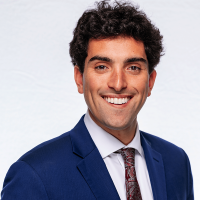
Giuliano Kornberg '15
Chief Development Officer, Sacramento Philharmonic & Opera
1. Exactly what do you do?
I serve as the Chief Development Officer for the Sacramento Philharmonic & Opera, where I'm responsible for the organization's fundraising efforts and raising the contributed revenue necessary for us to function effectively and carry out our mission
2. What was your first job out of college?
Full-time, temporary - Artistic Administration Intern, San Francisco Opera; Full-time, permanent - Development Associate, Sacramento Philharmonic & Opera.
3. Describe a critical moment in your career trajectory.
Realizing that collaborating and working together/putting others in position to succeed made our fundraising (and general) results better. Also letting my boss know of my career goals and ambitions, and asking for her guidance on what I should focus on and learn to start making those goals happen.
4. How do you sustain your creative practice, from meeting financial needs to staying motivated?
I'm lucky in that I get to speak about music with individuals that also love music all day - so I am still part of the music world and think about it daily. I also, from time-to-time, play a little bit on my marimba, guitar, and other percussion instruments I have to relax and be creative.
5. What advice do you have for current students about what they should be doing now? *
Learning as much as possible both about the industry they're interested in and themselves. Informational interviews are terrific ways to learn more about a potential job and line of work. And reflecting on yourself helps you realize what's important, what are some things you really want to do, and what are some things you definitely don't want to do (which is probably just as important!)
-Giuliano Kornberg (he/him)
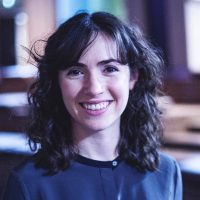
Jennifer Rosenfeld '09
Business Coach for Musicians
1. Exactly what do you do?
I help high level musicians create profitable online teaching and coaching businesses.
2. What was your first job out of college?
I co-founded a company called iCadenza that helps classical musicians with career development.
3. Describe a critical moment in your career trajectory.
I've had several...but being entrepreneurial in the arts has been at the core of my career for 10 years and I've figured out how to make it work.
4. How do you sustain your creative practice, from meeting financial needs to staying motivated?
Having the support of great coaches and mentors, and having motivating projects. I run a multi-six-figure business coaching musicians and I'm writing a musical, so it is possible to have both financial stability and space for creative practice.
5. What advice do you have for current students about what they should be doing now?
Become knowledgeable about business and money from the start. Also, aim high when it comes to your creative dreams.
-Jennifer Rosenfeld (she/her)
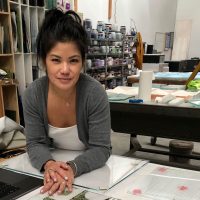
Julie W Chang '07
Artist
1. Exactly what do you do?
I make work that looks at how identities are constructed and how (mis)understandings of both self and other might be resisted, subverted, and reimagined. Inspired by diverse sources – from wallpaper to weavings to genetic mutations and systems theory, I draw from a visual vocabulary that juxtaposes differing perspectives to provoke conversations about race, class, gender, and cultural commodification; to explore the personal and political forces (narratives, cultures, myths, institutions, and expectations) that shape and misshape our lives. In approaching public works, I use patterns to bring intimate, private, domestic shapes into public view, disrupting normal habits of seeing. Projects are context specific, influenced by the community and sites for which the work is designed.
2. What was your first job out of college?
Restaurant Manager
3. Describe a critical moment in your career trajectory.
Prior to starting the MFA program at Stanford, I was teaching full-time and enrolled in the part-time MFA program at SFAI. While I had reservations about leaving behind the security of my teaching position, I felt it was both necessary and time for me to focus, without distraction, on my art practice. The body of work and relationships I made during this time directly lead to a residency at the Headlands Center for the Arts, representation with Hosfelt Gallery in San Francisco, and numerous public art projects with the San Francisco Arts Commission.
4. How do you sustain your creative practice, from meeting financial needs to staying motivated?
Having a family while sustaining an art practice has its advantages and disadvantages. Having a partner, who took more traditional career path, has allowed me to keep the financial needs of the studio separate from the family's. However, having young children has made prioritizing my creative time and energy a constant struggle. I've found accountability, community and structure, whether in the form of a gallery or project deadline, residency or working with an assistant in the studio, to be the most effective motivators.
5. What advice do you have for current students about what they should be doing now?
I would advise students to expand their vocabulary of experience and knowledge well beyond their art practice. The pressure, while still students, to specialize or to have a well articulated creative identity can hinder the creative process.
-Julia W Chang (she/her)
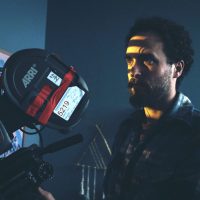
Sam Ellison '17
Filmmaker & Cinematographer
1. Exactly what do you do?
I am a filmmaker and a cinematographer. I make independent documentaries of my own and also work as a camera operator on bigger productions like "Manchester by the Sea", "A Beautiful Day in the Neighborhood", "I Know This Much is True", and "Vox Lux."
2. What was your first job out of college?
I moved straight to New York City and got a job as a PA (Production Assistant) on the first film that would hire me.
3. Describe a critical moment in your career trajectory.
In 2015 I was feeling restless in my job as a camera person, and needed to find a way to restart my creative engine. I decided to put my regular career on hold and go back to school (to Stanford!) in order to get back on my feet as a creator with my own voice. Over the next few years this led to the production and release of my first feature length documentary, "Chèche Lavi", which has played at a lot of great film festivals around the world and will soon be available to stream on Kanopy.
4. How do you sustain your creative practice, from meeting financial needs to staying motivated?
For me it's essential to find a balance between the stuff you do for money and the stuff you do for yourself. It's great that I have an artistic day job, but I try to be selective about the projects I commit to in order to keep part of the year open for my own filmmaking. As long as I don't do one thing for too long, I feel excited and energetic. I don't like to feel stuck! And I totally feel the pain of my likeminded kinfolk who are crawling up the walls right now in pandemic isolation.
5. What advice do you have for current students about what they should be doing now?
Take advantage of your time in school! The more energy you put in to your art practice now, the better off you will be when you get out in the real world. You can make great work as a student, and people will want to see it. Submit to festivals and group shows and galleries! Take yourself seriously! All your work is meaningful.
-Sam Ellison (he/him)

Kiyan Williams '13
Artist / Professor
1. Exactly what do you do?
I am a visual artist who works fluidly across sculpture, performance, video, public art, and scholarship. In a process-driven approach, I often work with non-traditional, quotidian materials and processes to create works that evoke the social, historical, and political forces that shape contemporary life in America. I exhibit my work in the contexts of museums, galleries, and public space.
2. What was your first job out of college?
In my first job out of college I worked as a communications coordinator for an LGBTQ youth center in New York City. On weekends and after work I participated in art fellowships and residencies to cultivate my creative practice.
3. Describe a critical moment in your career trajectory.
A critical moment in my career trajectory was in 2015 when I transitioned out of my full-time job in the non-profit sector to become a full-time artist. The transition was a risk because I had no safety net (I don't receive financial support from family or access to familial / generational wealth). I needed to become an artist, not as a profession, but as a way a being in the world, in order to live a self-determined and self-actualized life. My transition to becoming a full-time artist was one of the most important decisions I've made in my life. I gave myself the of time and space to fully commit to my creative expression and cultivate my artistic voice.
4. How do you sustain your creative practice, from meeting financial needs to staying motivated?
In the beginning of my practice I had a full-time job to sustain myself and made art on weekends. When I transitioned out of my full-time job I had to develop a range of creative strategies to support myself. Currently, I meet my financial needs through art sales, teaching at the university level, grants, and creative partnerships with universities and arts organizations. For me art is an approach, a way of being in the world, a form of knowledge production, and a life-long practice of inquiry and multidisciplinary problem-solving. I often use my practice to address needs in my actual life, map out desires, and conjure futures I want to inhabit, which is a perpetual source of inspiration. I also read widely and try and find points of connections between my creative interests. Ultimately, I believe art can be anything, and so remaining open to possibilities and allowing myself to experience my full range of sentience helps keep me motivated.
5. What advice do you have for current students about what they should be doing now?
My advice is that you should be learning as much as possible, learning about yourself, your motivations, your dreams, the world you want to inhabit. I think you should supplement your formal academic training with real world experiences. Get off campus and experience life beyond the bounds of the university. Also, if you want to be an artist I recommend interning with an artist whose practice interests you and aligns with your own. Stanford provides so many opportunities and resources to support summer internships. Working and interning with an artists during my undergraduate years was one of my most invaluable learning experiences and taught me things I'd never learn in a classroom.
-Kiyan Williams (they/them)
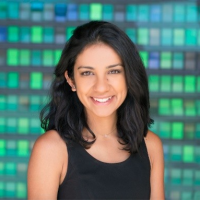
Anika Nagpal '18
VR Production Manager
1. Exactly what do you do?
I am a production manager at Baobab, making Pixar-like animated short films in VR!
2. What was your first job out of college?
Operations at a medical device start-up out of design for extreme affordability
3. Describe a critical moment in your career trajectory.
Switching industries! I stared out post-grad at a medical device start-up and finally made the decision to actually try a career in animation. It was a challenge for me personally to come to terms with doing an art job full time vs. a side hustle.
4. How do you sustain your creative practice, from meeting financial needs to staying motivated?
I struggle with motivation to keep my creative practice going on my own time. It's hard because you also work a full time job and are tired at the end of the day! It really helps me if I create structure for myself- taking an online class that has a schedule, doing freelance design work so that you have a deadline to stay accountable to, signing up for figure drawing sessions at a local arts college every week.
5. What advice do you have for current students about what they should be doing now? *
Make a list of your favorite professors and advisors from Stanford. Set up meetings with all of them before you graduate. That will set up a great anchor so that you can keep in touch post-grad. Professors are super super valuable connections to have as you head out into the real world!
-Anika Nagpal (she/her)
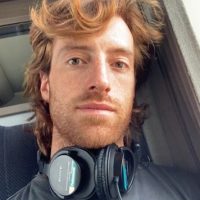
Orfeo Tagiuri '13
Artist
1. Exactly what do you do?
Artist (mixed media exhibitions), animation and music for brands. I’m not very rich or famous but the stuff I make is cool and I have a good creative group whose work I can respect/engage with.
2. What was your first job out of college?
Assistant on a documentary film/bagelsmith. My advisor suggested I should become a butcher if I wanted to be a writer. This was a frightening suggestion but pointed out the value of everyday experience for any creative.
3. Describe a critical moment in your career trajectory.
I worked for free for two people who really altered my trajectory. The first was a fashion photographer/landscape photographer who I helped do even simple tasks like moving his studio or transporting an artwork. He gave me an insight into the business side of the art world and some aspects of navigating it. Now we are close friends.
The second was a bookstore owner in Paris called Yvon Lambert. He used to run a successful art gallery in Paris and many artists came into the shop regularly. I volunteered there, read the art books and spoke to different creatives. Ultimately I met one of my favorite living artists, Camille Henrot, and formed a valuable friendship with her.
From these two I learnt that network plays a huge role in the arbitrary/saturated creative world. I also learnt the value of foregoing monetary returns in order to absorb knowledge/experience from someone whose career/path genuinely interested me.
4. How do you sustain your creative practice, from meeting financial needs to staying motivated?
Now I balance my own creative work with occasional collaborations with brands (Gucci, Marni, Dior) and artists. I’m still at the early stages, I’m sure, but it’s a constantly varying pathway which keeps me motivated.
5. What advice do you have for current students about what they should be doing now?
I had a few tormented months right when I graduated. I thought I would go straight into some creative field and earn a good living making beautiful art. It took me time to learn what kind of art I was interested and to have the relationships that gave me any sort of creative perspective. Develop a community of creative friends you can correspond and develop with. Go to art shows even if they usually suck. Meet the people involved.
-Orfeo Tagiuri (he/him)
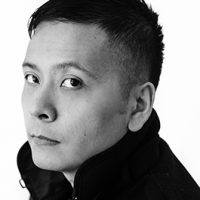
Jerome Reyes '11
Visual Artist & Educator
1. Exactly what do you do?
Jerome Reyes (b. 1983 Daly City, CA works between Seoul, Korea and San Francisco, CA) is an artist, researcher, and educator working with the collaborative potentials of institutions, alterity, and architecture. He is Artist Liaison and faculty at Stanford University’s Institute for Diversity in the Arts, teaching courses and designing partnerships with artists, curators, scholars, and organizations. Reyes is also Researcher, at Asia and Migration, Asia Culture Institute, in Gwangju, Korea. He also is a long-term collaborator of the South of Market Community Action Network (SOMCAN) in downtown San Francisco, and is also an advisory board member of the nonprofit media and culture organization, Define American.
2. What was your first job out of college?
Two months after graduating in 2005 hired as faculty at the San Francisco Art Institute. Co-founded the City Studio program, an interface across graduate, undergraduate, high school students and visiting artists/scholars.
3. Describe a critical moment in your career trajectory.
Working at SFAI at 22 years old alongside leading world contemporary art curators and having their direct support, Okwui Enwezor and Hou Hanru, built the momentum for a global base of colleagues and friends that I have to this day. I'm able to combine that with extensive local knowledge and national history, with Stanford's label in the many institutional projects that I do. It showed me how to take these worldly ideas and by the time I got into Stanford, I was still faculty at SFAI and was ready to place these resources together and raise my stakes in scale, funding, and exposure. I have not left Stanford since. I will represent the United States at the 2020 Yokohama Triennale; much can be traced back to this trajectory.
4. How do you sustain your creative practice, from meeting financial needs to staying motivated?
I have lots of projects and teaching all happening at once. I can't remember not being motivated for decades since I work alongside organizers and activists as well. There is always work to do, meetings and projects to complete. Stanford students are already great at this since you manage several classes and meetings a quarter. Continue this order of life with a larger perspective and as you graduate. Just know the world doesn't operate in 10 week quarters. You'll need this as you manage different scales of ideas, from projects that take one year to several. I also manage my income flows, from teaching, to public art commissions, to selling studio artworks, speaking engagements, constantly writing grants (my own and actually more as a consultant), and even paid by Korea to research.
5. What advice do you have for current students about what they should be doing now?
I advise intensive, years long Stanford capstone projects so I'll say the same thing here. No matter what you pick right now you won't be wrong. Learn how to be relentless, because Stanford and the world will not be responsible to take care of your arts practice after graduation. You can be outgoing and loud, quiet and kind, whimsical and super organized, whatever works for you. As long as you keep working on your ideas, applying to opportunities, asking tough questions, traveling, and trying different versions of yourself you have a chance. You have to be brave and crazy to make this work.
-Jerome Reyes (they/them)
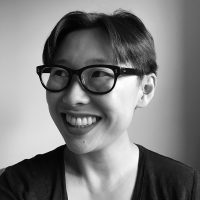
Trisha Okubo '05
Founder & Creative Director of Maison Mir
1. Exactly what do you do?
I'm the founder and creative director of Maison Miru (www.maisonmiru.com), which creates jewelry for creative living. I design jewelry - modern heirlooms that you can mix and match to tell your own unique story.
2. What was your first job out of college?
Business analyst at a media company, Knight Ridder Digital.
3. Describe a critical moment in your career trajectory.
My biggest turning point in my career was quitting my tech job to take a gap year - this time and space allowed me to explore life paths outside the traditional box. I took the time to explore different interests, and after evaluating my options, I ended up starting my own company.
4. How do you sustain your creative practice, from meeting financial needs to staying motivated?
When you're a (creative) entrepreneur, you have to find the balance between what you love to do, what you're good at, what the market needs, and what the market values. Once you hone in on that sweet spot, you can sustain your creative practice while meeting your financial needs. It's not easy - it's definitely easier said than done - but it's a good framework for evaluating options for what to pursue. As for motivation, focusing on my customer is what drives me - I love creating jewelry for people who love jewelry.
5. What advice do you have for current students about what they should be doing now?
Never stop learning, even when - and especially when - you graduate from school. Pursue hobbies just for the fun of it. Explore. Try new things. Keep a beginner's mind - and don't be afraid of failing.
-Trisha Okubo (she/her)
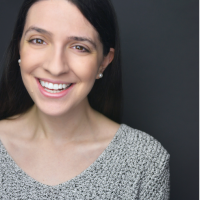
Sammi Cannold '15
Theater Director
1. Exactly what do you do?
I'm a freelance theater director based in New York and working in the city, regionally, and internationally. I primarily direct musical theater, but have also worked on plays, pageants, circus, and events/ceremonies/galas.
2. What was your first job out of college?
I was the assistant director on a reading of the musical adaptation of Prince of Egypt.
3. Describe a critical moment in your career trajectory.
When I was a sophomore at Stanford, a friend recommended me for a production assistant position on the national tour of the Gershwins' Porgy and Bess at the Golden Gate Theater. It was my dream to work for the director Diane Paulus and through that position, I got to know her and ultimately went to work at her theater (the American Repertory Theater) when I graduated. In retrospect, I can trace almost every job I've had since back to the doors that opportunity opened and what I learned from it.
4. How do you sustain your creative practice, from meeting financial needs to staying motivated?
It's difficult! Being a freelancer means you have to be very self-motivated, particularly at this moment in time when almost none of us are employed. So, making sure you're using the time you're given to grow yourself and your practice is hard. This may sound abstract, but I've found the only way to sustain it is via passion; I love directing and I love the stories I get to tell more than anything, so the drive to work on them comes naturally and I can usually measure how passionate I am about a given project by how often I find myself working on it without intending to. This business is brutal emotionally, financially, physically -- so, you have to really love it to sustain a career in it -- don't force it if not, because there are many, many better routes to a happy lifestyle.
5. What advice do you have for current students about what they should be doing now?
If you're serious about entering theater, there's a sort of infinite and very steep learning curve to understanding the industry and I think that's something that's under-discussed in the sense that we spend a lot of time in college developing who we are as artists, which is amazing, but I've found that equally, we need to develop ourselves as entrepreneurs. Take Broadway, for example -- if you want to be a Broadway director, of course you have to understand the art-form/how to make theater first and foremost. But at the same time, you need to understand how Broadway shows are budgeted, how real estate works on Broadway, the agency ecosystem, how freelancers get connected to projects, etc. -- all of the business elements that allow you to do your work as an artist. Particularly in commercial theater, I don't think it's possible for artists to live in a bubble and ignore the logistics of how their art gets made. So, if you find yourself with lots of time in this period, I'd recommend reading as much as you can on Playbill.com, reading books on theater history, listening to podcasts, etc. And all that with the grain of salt that none of us in the industry know exactly what the industry is going to look like when we get out the other end of this, but understanding its roots is valuable no matter what.
-Sammi Cannold (she/her)
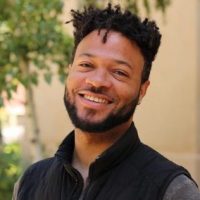
Tyler "EagleBabel" Brooks '17
Sound Engineer / Arts Administrator
1. Exactly what do you do?
Work for the central administrative office of the arts at Stanford University; run and assist student-facing services, such as equipment rental and access to a public drop-in arts maker space; supervise two student interns who research student engagement in the arts (e.g. event turnout, student interest in programs, participant satisfaction).
2. What was your first job out of college?
Starbucks Barista!
3. Describe a critical moment in your career trajectory.
During my second Academic Suspension / Leave of Absence in March 2015, eight friends and I banded together to form a music group called The Outsiders. Operating for years as a "proto-" music label, we handled our own management, music and video production, marketing, and booking. We put out seven records between March 2015 and December 2016, including a guest feature from Grammy-nominated artist Rapsody. Those busy first years with the Outsiders gave me invaluable experience navigating the music industry as an independent artist, which I feel best prepared me for when another collaborator Jessica "Jessica Lá Rel" Anderson approached me about being the lead producer and mixing engineer for her debut album War Love, released in October 2018.
4. How do you sustain your creative practice, from meeting financial needs to staying motivated?
Music is my life! Though the work of administration is busy during day hours, I still get a lot of time to feed my creative appetite. Since working on Jessica Lá Rel's album, I have become very creatively and financially invested in being a sound engineer, now handling all my own mixing and mastering. I research much on these topics, have been teaching mixing and mastering workshops since 2018, and work very hard at refining my engineering techniques. In coming years, I hope to start supplementing my income from admin with DJing and licensing for film, TV, etc. Meanwhile, I hope to finalize a full-length album that's been in production since my early Outsiders days.
5. What advice do you have for current students about what they should be doing now?
Any opportunity to have immersive experiences in your creative area of interest -- in real life, real-time -- I say absolutely go for that. Those experiences won't just show you how your industry and its markets work, but also push you to start making those formative decisions about the kind of life you want in the arts. Do you want to be an independent artist, or affiliated with a major label, dance studio, movie studio? Do you want to direct your talents and stamina to supporting other artists or arts organizations, or do you want to be a public figure and sustain a platform(s) as one? What kind of cash flow best works for you: freelance gigs and/or "mailbox money" from royalties? If you have a "steady" full-time gig, do you work remotely or on-site? When you're "on the field," you naturally see how others are (or are not) balancing all of these questions. And the sharper *your* introspections and more expansive your imagination in answering these questions, the more likely and effectively you can maneuver your field, build and call on support, and discover funky workarounds that make a life in the arts all more doable. Oh, and never stop falling in love with art -- its beauty, its magical powers, the way it creates platforms to elevate voices, the way it changes lives. Keep falling in love with it. And then fall in love with it some more.
-Tyler "EagleBabel" Brooks (he/him)
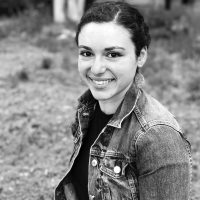
Meredith Joelle Charlson '16
Contemporary Dance & Theater Choreographer
1. Exactly what do you do?
Contemporary Dance and Theater Choreographer.
2. What was your first job out of college?
Assistant Choreographer for Stanford TAPS's production of "Spring Awakening: The Musical"
3. Describe a critical moment in your career trajectory.
The first critical moment was working on "Spring Awakening: The Musical" at Stanford. The success of that show opened opportunities for me to choreograph in the theater world, and since then I have worked in both the contemporary dance and theater realms. The second was completing the Kibbutz Contemporary Dance Company training program in Israel. I developed immensely as an artist and dancer, while simultaneously realizing that I did not want to become a professional dancer. I wanted to pursue choreography instead.
4. How do you sustain your creative practice, from meeting financial needs to staying motivated?
I financially support myself by working as the Director of Writing for Campanile College Counseling, Inc. in San Mateo. Creatively, I attend as many professional theatre and dance performances as I can. I take dance classes to increase my movement vocabulary, and I apply for grants and residencies to support my projects.
5. What advice do you have for current students about what they should be doing now?
Look for opportunities, large and small, that will foster your growth as an artist. That opportunity may be a training program, an MFA, a fellowship, a grant, a class, or a job. Practice your craft, be open to criticism, and seek mentorship.
Meredith Joelle Charlson (she/her)

Janani Balasubramanian '12
Artist
1. Exactly what do you do?
I work in close collaboration with scientists (particularly astrophysicists) and technologists to deliver works in a number of different media that usher us into a feminist universe. I frequently work in TV/film, fiction, immersive theater, and new media (AR/VR), but for me form is a question that follows ideas. I use art works as an occasion to pursue high-stakes research questions and build relationships between communities, ideas, disciplines, and institutions. I pursue the limits of my own curiosity, and I'm ruthlessly pragmatic about my wild dreams.
2. What was your first job out of college?
Touring performance artist.
3. Describe a critical moment in your career trajectory.
A critical moment for me was joining the brown dwarf astrophysics group at the American Museum of Natural History. We are a group of ~14 scientists (plus me!) working on low mass stars and brown dwarf objects. In relationship with them, I have cultivated a strong practice in the deep listening work that undergirds my practice as an artist among scientists, and an understanding of what a feminist astrophysics can look like.
4. How do you sustain your creative practice, from meeting financial needs to staying motivated?
I sustain my creative practice financially through a number of university residencies, tech partnerships, teaching, presentation/creative fees, and sales of projects. I am happy to discuss finances with anyone who is embarking on their artistic career and wants very practical advice on this!
I stay motivated by staying deeply in relationship and community. I show up to research group meetings every week. I have meetings with collaborators regularly both for work and non-work purposes. I set up coworking infrastructures with collectives and collaborators.
I also find lots of personal time to read/watch/listen to older artists who inspire me to evolve my work, and who model a future trajectory for my practice.
5. What advice do you have for current students about what they should be doing now?
Endeavor at opportunities that are both practical and imaginative. Learn how to make a budget, a resume, a grant application, an investor request/meeting, a film reel, a portfolio, a writing sample, a website. But also--read widely, watch films by artists who inspire you, listen to music that opens your heart, wander in open fields and roam quietly through concrete structures. What is in your heart that you want to open up, grow, and express? Think about the practical aspects of the job--the money, space, people--as a process of bringing that forward into the world we live in, and toward cultivating the universe we want to live in. Being an artist is a vocation; it's a whole practice of living and being in relationship to people and the world. How are you cultivating that world for yourself, your reality, and all your flaws and growing edges?
-Janani Balasubramanian (they/them)
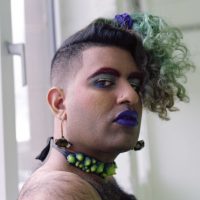
ALOK '13
Writer & Performance Artist
1. Exactly what do you do?
I am a writer and performance artist.
2. What was your first job out of college?
I worked as a community organizer at the Audre Lorde Project.
3. Describe a critical moment in your career trajectory.
There have been so many. But one that stands out is self-publishing my poetry book "Femme in Public" in 2017. I was overwhelmed by the response -- and it helped propel me to my first solo-international tour. It taught me, more than anything, not to wait until I was recognized by the systems in place, but to actually take matters into my own hands. I think social media has really shifted the game -- now we can bypass traditional avenues and self-create.
4. How do you sustain your creative practice, from meeting financial needs to staying motivated?
You have to treat your creative practice like a job: scheduling hours, working outside of your bedroom (if you can), having rubrics and deliverables. It can feel strange to make the thing that you feel most emotionally/spiritually connected to the means of your income. For some people it's better that these are left separate, but if you want to be a working artist you have to submit to this kind of ickiness and murkiness of figuring out how to actually make money from this thing that you love doing.
5. What advice do you have for current students about what they should be doing now? *
Now is a time for rampant idealism, for creative intervention, for renaissance. In moments of crisis an opportunity opens for fundamental paradigm shift. We need artists more than ever to show and teach what another way of living, another way of relating to one another and the earth, could look like.
- ALOK (they/them)

Sarah Berkovich '13
Film Education Manager
1. Exactly what do you do?
I'm wearing many hats right now because I'm supporting online programs across my organization (which is basically everything right now), as well as continuing a year-round youth mentorship program. My day to day involves a lot of coordination and project management, focused around creating film education programs for students and emerging independent filmmakers.
2. What was your first job out of college?
Out of undergrad I did many odd jobs such as retail and nannying. Out of grad school, I got a job at UC Berkeley's Educational Technology Services helping with their media productions.
3. Describe a critical moment in your career trajectory.
I had an injury which took me out of work for nearly a year. I had to rethink what I was capable of and interested in doing professionally. It was a really hard time for me, but I began learning about new technology such as Virtual Reality out of interest, and that has shaped my career path since. I also discovered during this time that I really enjoy teaching. I have a way better balance at work today because I had to take a step back.
4. How do you sustain your creative practice, from meeting financial needs to staying motivated?
I feel fortunate to have found a job that lets me keep learning, and at times being creative. I haven't always found that in jobs I've had to take. I also get to meet many filmmakers and watch a lot of films, which I love. The job feels like a good fit because I get to use the skills I've gained from film production and stay industry adjacent. It's also just provided me some much needed stability after a few years of working on independent projects with inconsistent cash flow.
5. What advice do you have for current students about what they should be doing now?
If there's not much traction on the job front, take the time to dive deeply into learning something new that's interesting to you. There are many tools and resources that are free right now. I'm also suggesting to my students that it's a great time to learn game development on Unity. That's an in demand skill that's highly paid and remote work.
-Sarah Berkovich (she/her)
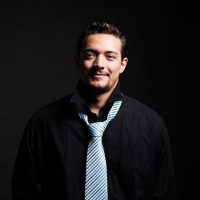
Stephen Henderson '11
Software Product Manager / Musician
1. Exactly what do you do?
Right now I am a software product manager for mobile applications with a company called Cricut. I am in charge of developing and launching software experiences to help bring more value customers who use our hardware products. I also write songs and do shows on the side :)
2. What was your first job out of college?
Social Media Marketing Manager for Charlie Sheen.
3. Describe a critical moment in your career trajectory.
Getting a job at Musicians Toolkit. After being in creative marketing and contracting with a bunch of different entities, I moved to full time work and got into product management. Then I earned an MBA and went full throttle into the software world.
4. How do you sustain your creative practice, from meeting financial needs to staying motivated?
I designate one day a week where I work on music for at least 4 hours. I maintain a release schedule with fellow collaborators who are also accountability partners. I read a book a month. I also work full time as a product manager - but any money I get from shows or from songwriting licensing I spend on music gear.
5. What advice do you have for current students about what they should be doing now?
Take business and design classes - the d.chool, GSB and CCRMA are excellent areas. Start releasing art. Take art and music classes. Take advantage of the camera and audio equipment at Stanford and a peer group who will shoot you and record you for free. Worry less about brand building and more about creating and releasing things to the world and learning as much as possible about whatever art form/business you are going into. Find a community of artists who are also best friends and build relationships that stick. Apply for arts grants and find other ways to hustle and make money with your art - take it as a challenge.
-Stephen Henderson (he/him)
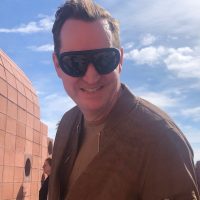
Michael Darling '90
Chief Curator, Museum of Contemporary Art Chicago
1. Exactly what do you do?
I am the Chief Curator at the Museum of Contemporary Art Chicago, a job I have held for nearly 10 years. I oversee all the artistic programs at the museum, including exhibitions, collections, publishing, performance, learning, and public programs. I also curate exhibitions myself and generally help to synthesize the ideas of my teams into a unified artistic identify to represent the museums goals and values.
2. What was your first job out of college?
Substitute teacher in middle and high schools.
3. Describe a critical moment in your career trajectory.
I went outside my comfort zone and approached a curator whose work I admired and asked if I could take her for coffee sometime to learn more about what she did. That lead to a temporary research position which I was able to stretch out to an eight year tenure and the launch of my museum career.
4. How do you sustain your creative practice, from meeting financial needs to staying motivated?
For me, it is seeing art and most importantly, visiting artist studios that refills my creative tank. It is too easy to be bogged down with administrative office work and if I can get out and see artists at work and hear what is motivating them, I can recenter my perspective.
5. What advice do you have for current students about what they should be doing now?
Do as much self-directed work as you can in your field of interest. You should not just follow along with the proscribed path of your major, but seek out ways to be a contributor and show people that you are passionate about your particular field. This will be evident on your CV and show potential employers that you HAVE to be doing this work. That it is in your blood.
-Michael Darling (he/him)
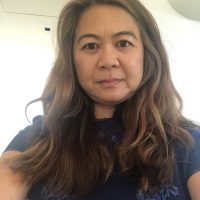
Stefanie Huie '94
Film/TV Producer
1. Exactly what do you do?
I'm an independent film and television producer
2. What was your first job out of college?
I worked in the accounting department of Dianne Feinstein's 1994 Senate reelection campaign.
3. Describe a critical moment in your career trajectory.
Being promoted from assistant to Director of Creative Affairs at Paramount Pictures. The leap from assistant to executive is always one of the toughest but also one of the most important steps in moving your career to the next level.
4. How do you sustain your creative practice, from meeting financial needs to staying motivated?
It is difficult in this time to stay focused. I've found it's important to continue to read anything - books, articles, magazines, newspapers. I find ideas/inspiration from so many sources as long as I'm looking. Also important is having a system and keeping track of ideas.
5. What advice do you have for current students about what they should be doing now?
Work on your craft and push yourself to improve all the time. Do informational interviews and educate yourself on all aspects of your business - so even if you aren't on the business side, you understand their point of view and how to work with them.
-Stefanie Huie (she/her)
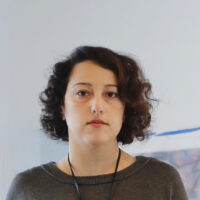
Sanaz Mazinani '11
Artist / Professor
1. Exactly what do you do?
Full time Visual Artist and Professor in Studio Art at the University of Toronto.
2. What was your first job out of college?
Artist Assistant.
3. Describe a critical moment in your career trajectory.
Choosing to live with little means to be able to focus on my artist practice.
4. How do you sustain your creative practice, from meeting financial needs to staying motivated?
I simply love what I do and am 100% committed to it. When not feeling motivated I try to consider the bigger picture. My goals and intensions with the artwork. When a task is particularly unenjoyable, I have a saying that helps me move forward. It is: "You got to get to it to get through it."
5. What advice do you have for current students about what they should be doing now?
Figure out a way to support yourself that offers you a balanced way of life. We all have one life to live and I think that our work should be something that we are proud of and can fulfill us personally. I associate the pride with what I give back to my community. I often try to ask myself, how does this work better the world? How is my contribution valuable?
-Sanaz Mazinani (she/her)

